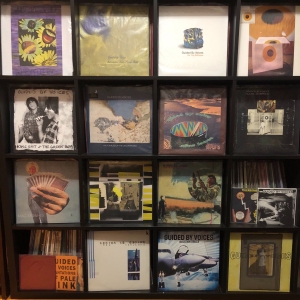
For a long time I was fond of, but not obsessive over, Robert Pollard’s cultural institution Guided by Voices. This vaguely contrarian position was intentional. Knowing the tendencies of my brain and their depths of their catalog, I could see the path laid out before me: tracking down limited-run split singles for the “real classics,” spending weeks with each 100-song Suitcase supplement, eagerly awaiting solo albums and side bands. Truly becoming one of the “But have you heard ‘Dirigible Luggage Compartment’ from the Warlocks in Crevices EP? That’s one of his best songs, you have to hear it” guys. I pushed off this inevitable fate as long as I could, sticking with a half-dozen of the readily available albums that I’d picked up over the years.
My push off the ledge came late in 2015 when my friend Scott mailed me his extra copy of Propeller, which was not one of the half-dozen, readily available albums with which I was familiar. I decided to consume as much of the Pollardverse as I could over the next year, trading assessments with Scott as I moved from album to album. I intended to write about the experience at the time, but despite listening to the vast majority of the band’s output released to that point, I never stopped to collect my thoughts. I couldn’t—Pollard never stops. By April of 2016, there was a new Guided by Voices reunion, a new Guided by Voices lineup, a new Guided by Voices album. I still had Suitcases to unpack, Circus Devils to wrangle, post-2005 solo albums to dutifully digest. It had taken a year but I was finally overwhelmed, finally defeated by his boundless output. I’ve seen Guided by Voices three times since 2016 and I’ve learned a key lesson around the two-hour mark of those sets: Pollard will out-rock anyone.
Given my ongoing lack of anything better to do on a Saturday, I’ll spin as many Guided by Voices records as I can in one day, compiling my current thoughts on the individual albums and finally relaying whatever wisdom I accrued from my deep dive four years ago (I admittedly failed the test for recalling the finer details from extracurricular material like James Greer's Guided by Voices: A Brief History, Twenty One Years of Hunting Accidents, fan-excavated song histories, and consensus-probing review assessments). I can only play what I own on vinyl, so nothing before Propeller, but there aren't enough hours in the day for me to get through what I do own.
Propeller, 1992
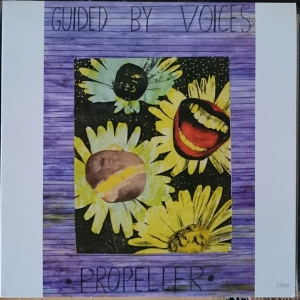
Propeller isn’t a hidden gem. People know it’s good. Many of its songs still grace their set lists, including the opening chant of “G! B! V! G! B! V!” from “Over the Neptune / Mesh Gear Fox.” But unless you stroll into a portal to 1992, you will not find it on vinyl for a reasonable price at a record store. Its initial, self-released pressing of 500 copies featured unique, hand-made covers, and the top selling price on Discogs for one of these numbered editions is a whopping three grand. Later pressings—an inclusion in the 1995 Box along with their other early records, the 2005 Scat reissue—are neither plentiful nor cheap, and a $20 reissue would be a godsend. (It might happen—a long-overdue reissue of 1993’s Vampire on Titus is coming as an unofficial Record Store Day title this year, whenever Record Store Day ends up occurring.) You can, of course, hear Propeller on Spotify or buy it on CD (perhaps a used copy of the combo edition with Vampire on Titus), but where’s the fun and tremendous expense in that?
Propeller is an aptly-titled shove down the path to obsession. With apologies to Box-enclosed titles like Self-Inflicted Aerial Nostalgia and Same Place the Fly Got Smashed, Propeller is when Guided by Voices became GBV, when Pollard both authored and lived up to his self-mythology. It’s when his penchant for cut-and-paste palimpsests came to fruition, when fist-pumpers like “Exit Flagger” could transport the band from a Dayton garage to a packed football stadium, when a gentle Tobin Sprout contribution like “14 Cheerleader Coldfront” could complicate attempts to derive a specific formula for the band’s greatness. Is it the band’s best album from front-to-back? Probably not, but it’s astonishingly close.
Surrender Your Poppy Field, 2020
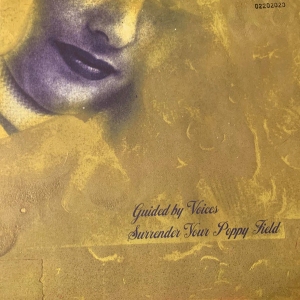
A few months ago I reserved a copy of the newest Guided by Voices album at the record store, and enjoyed an interaction in which neither of us could initially remember the title, and just before I pulled Surrender Your Poppy Field out of the deep recesses of my brain, I joked that “I could say almost anything right now and it would be plausible.” It’s easy to envision Robert Pollard extracting twenty new songs from a large hat of classic rock / British Invasion variables and a dog-eared dictionary, and his idiosyncrasies lend themselves to parody (Tim Heidecker’s GBV homage is heartily recommended). But however loving and/or potentially accurate they may be, such casual dismissals ignore the reality of the current renaissance blossoming in Guided by Voices’ catalog. Sparked by the return of once-and-future lead guitarist Doug Gillard, the last half-dozen records (three of which were released in 2019!) are consistently strong. Pollard’s voice has returned to form after aging into a slight croak over the Reunion Round One albums, the backing band featuring Gillard, Bobby Bare Jr., Mark Shue, and veteran drummer Kevin March is thoroughly up to the task, and hypothetical hits like “Volcano” immediately settle into their repertoire like a well worn pair of jeans. I hit a point after Please Be Honest when I needed a break, and so I had to circle back to albums like August by Cake and Space Gun (again, I could say anything here), but Surrender Your Poppy Field only serves to replenish my supply of enthusiasm for future material. (Mirrored Aztec appears to be the title of the next Guided by Voices album due in 2020.)
Do the Collapse, 1999
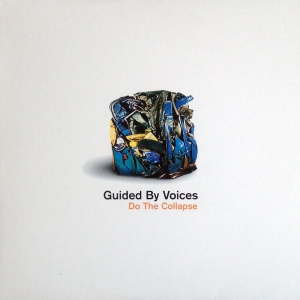
Upon its release in 1999, Do the Collapse was controversial in stereotypically ’90s indie ways that should have already dissipated. They left Matador! They have polished production from Ric Ocasek! The songs are angling for radio play! (A quick clarification here: GBV had signed to Capitol, who repeatedly delayed Do the Collapse, so the band moved onto large-scale indie TVT. Capitol technically owned 49% of Matador from 1996 through 1999, and Matador had a prior agreement with Atlantic to promote certain titles.) Plenty of beloved bands had made these moves by 1999, so it wasn’t like Guided by Voices were venturing into uncharted waters, but the devotion of their cult and the nature of their prior aesthetic fueled an unfair rejection of Do the Collapse. (Pitchfork gave it a 4.7.) The turn against them wasn’t as severe as Jawbreaker’s Dear You—I had a copy of Do the Collapse as a freshman in college, and saw them that November in a full club in Columbia, MO—but neither of GBV’s two TVT LPs received a proper critical assessment, let alone a full commercial breakthrough. It helped them make some new fans—“Hold on Hope” was featured on an episode of Scrubs, a Wikipedia note which does not apply to “Tractor Rape Chain”—but despite the honed hooks and power-pop sheen, it did not take over the airwaves. (1999 was an absolutely morbid time for “modern rock,” as evidenced by this chart.)
So is Do the Collapse a misunderstood classic? Not quite. The production is a strength, not a hindrance, lending smart flourishes to highlights like “Teenage FBI,” “Things I Will Keep,” “Surgical Focus,” and “Wrecking Now.” Ocasek was an inspired pick, and the ways that the vocal melodies are tightened work for Robert Pollard. The two big issues I have with Do the Collapse are 1. “Hold on Hope” is absolute treacle 2. A number of the songs suffer from ill-fitting, shoehorned sections. For instance, “Liquid Indian” has a superlative chorus and tedious verses, and whereas older Guided by Voices records might cut the verse out entirely, leaving only the good part, on Do the Collapse you’re going to hear that verse a second time. In spite of these issues, I still like Do the Collapse, perhaps because it doesn’t sound like any other record in the band’s discography, even Isolation Drills.
Let’s Go Eat the Factory, 2012
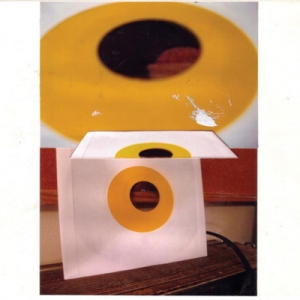
Guided by Voices’ “classic lineup” of Pollard, Tobin Sprout, Mitch Mitchell, Greg Demos, and Kevin Fennell reunited for concerts in 2010, only six years after a different lineup accompanied Pollard for the band’s “final” show on New Year’s Eve 2004 at the Metro in Chicago. (The DVD release of this four-hour, 63-song performance, The Electrifying Conclusion, came out in 2005, and is worth picking up if you don’t want to flip records every twenty minutes.) This lineup had produced the band’s most loved records, the mid-’90s trio of Bee Thousand, Alien Lanes, and Under the Bushes Under Stars (accompanied, at times, by Dan Toohey, Pollard’s brother Jim, future GBV biographer James Greer, and others—not quite The Fall, but getting there), and their return for Matador’s 21st Anniversary shindig in Vegas was significant. After the initial string of dates, Let’s Go Eat the Factory was announced, and it ended up being the first of six full-lengths from this lineup over the next three years. (B-sides from the accompanying singles account for another double-LP worth of material, some of which is, predictably, as good as songs deemed album-worthy.)
Processing the amount of material Pollard puts out in a given year is a difficult task, even in hindsight, and there’s a lingering temptation to wonder if he would have been better off holding the best songs from three albums released in a calendar year for a single album of keepers. A large part of Pollard’s appeal comes from his bewildering ability to pull perfect songs from the ether at any given moment, but his process changed over the years. The “classic era” is notable for having different tiers within his releases: for every Alien Lanes, there’s a bounty of supplemental releases that are optional for some (and essential for others). Until 1996’s Not in My Airforce, Guided by Voices was the sole receptacle for his songwriting, but after that point, numerous solo albums, side bands, and collaborations took their swigs from the bottle. In 2012, Pollard was still releasing solo albums (two that year, three the next), Circus Devils albums (two in 2013), and other material. So when I say that the six albums from the “classic lineup” reunion are spotty, there’s a clear reason why.
Even a spotty Guided by Voices album is worth my time, however, and Let’s Go Eat the Factory is no exception. “Unsinkable Fats Domino” is one of those perfect peaches plucked from the branch, Tobin Sprout comes to play with highlights “Waves” and “Spiderfighter,” and the curious “Doughnut for a Snowman” includes a surprising name-drop of “Krispy Kreme” but remains endearing. There are seventeen other songs, some of which are fragments recalling the band’s compositional approach of the mid-’90s, some of which are stiff and tuneless, and it’s awfully tempting to mentally construct a best-of double-LP from this era of the band.
King Shit and the Golden Boys, 1995/2015
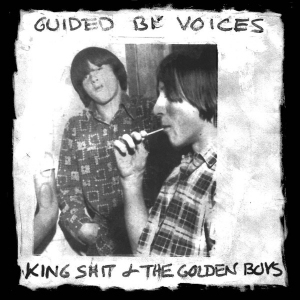
Originally included in the 1995 Box, this compilation of previously unreleased material was reissued outside of that set in 2015, allowing more listeners to hear outtakes from Bee Thousand (side two) and the earlier records (side one). The title should ring a bell as a lyric from the Under the Bushes Under the Stars classic “Don’t Stop Now,” which appears in an earlier version here. That point is significant in terms of Robert Pollard’s approach to unreleased material: sometimes a song is just waiting for the right home, or fresh ears, or different musicians. Having listened to the majority of the band’s official releases before starting on the Suitcase collections, I was amazed by how many times I’d recognize a song that had popped up ten, even twenty years after its original composition on a different record, from a different band (a few of the best Boston Spaceships [Pollard’s flagship outfit from 2008 to 2011] songs appear in demo form on a Suitcase). He never forgets or completely abandons old material, so the evolution of “Don’t Stop Now” from a buzzing, acoustic fragment to its final form as a majestic ode to the continuing spirit of his rock band makes sense. If anything, the surprise is that the evolution only took two years.
King Shit and the Golden Boys is by no means a recommended starting point. There are some keepers, of course—I’m fond of “Sopor Joe,” “Indian Was an Angel,” “Scissors,” and a rough version of live staple / contribution to Kids in the Hall’s Brain Candy soundtrack “Postal Blowfish”—but the general appeal of King Shit comes from there simply being more. Some of the Bee Thousand outtakes were reinserted into the album for the 2003 Director’s Cut, but my brain rejected that tapestry being unraveled and reworked. I’d rather hear outtakes as outtakes.
Half Smiles of the Decomposed, 2004
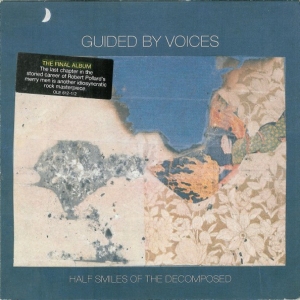
As I noted when I picked up the reissue last September, there’s an amusing hype sticker on Half Smiles of the Decomposed which reads “The Final Album: The last chapter in the storied career of Robert Pollard’s merry men is another idiosyncratic rock masterpiece.” At the time, sure, they meant it, but putting that sticker on the reissue when twelve new Guided by Voices albums had appeared since its original 2004 release is a welcome bit of levity.
By no means am I begrudging the reappearance of their swan song, unsung. The last of a trio of albums marking their early ’00s return to Matador, Half Smiles of the Decomposed is an underrated title in the group’s catalog. The highs are high: the record starts off exceptionally well with effervescent pop song “Everyone Thinks I’m a Raincloud (When I’m Not Looking),” twitchy post-punker “Sleep Over Jack,” and wistful strummer “Girls of Wild Strawberries,” and finishes remarkably well with the would-be career-closer “Huffman Prairie Flying Field.” In between those sections, however, there are some unmemorable, tired-sounding songs, with only “The Closets of Henry” standing out as a song worthy of consideration for the 100-song best-of mix I compiled sometime in 2015 (which, of course, is now woefully out of date). Most of those tracks aren’t bad, so this lack of consistency isn’t as egregious as the initial run of reunion albums. Matador Records, reissue Earthquake Glue next.
Alien Lanes, 1995
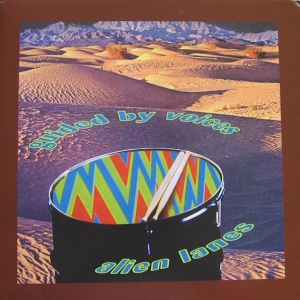
Guided by Voices had released six official full-lengths by 1993, but their list of tour dates didn’t start to accumulate until that year (the GBVDB is an exceptionally useful resource for concerts, song histories, abandoned alternate albums, and so forth). When I put on Alien Lanes, I immediately think of seeing Guided by Voices live, understandably since opener “A Salty Salute” has declared that “The club is open” at countless performances. Much has been made of James Greer’s mention that despite the album’s near six-figure advance, it’s unlikely that more than ten dollars was spent on its recording if you leave out the beer (which is frankly misleading, I wholeheartedly believe that Pollard’s spent a hundred grand on beer), but Alien Lanes sounds like a band playing live rock music in ways that Vampire on Titus and Bee Thousand often did not. It teeters on mid-fi, with songs like “Closer You Are” packing a punch that most lo-fi reference points can’t muster. Propeller fantasized about performing those songs in front of adoring crowds; by Alien Lanes, it wasn’t a fantasy except for scale.
Over its 28 songs, Alien Lanes skips between off-the-cuff (yet instantly memorable) fragments and surprisingly robust songs that immediately evoke a buzzed crowd belting out every word with their fists in the air. I won’t lie: hearing “Game of Pricks” and “My Valuable Hunting Knife” here makes me immediately yearn for the re-recorded, “professional” versions on the Tigerbomb EP, and if there’s any knock against Alien Lanes vs. its “classic era” neighbors, it’s that both Bee Thousand and Under the Bushes Under the Stars offer less monochromatic production palettes. That’s a minor quibble, however, for a thoroughly enjoyable album.
Please Be Honest, 2016
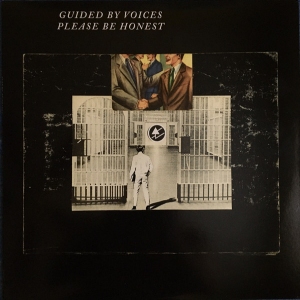
Please Be Honest marked the second return of Guided by Voices, two years after Robert Pollard’s relationship with the “classic lineup” had fizzled in 2014. It’s most notable for having Pollard play every instrument on the album, which might lead one to incorrectly assume “Oh, so it’s a solo album.” But something I learned from trying to make my way through Pollard’s solo catalog before tapping out somewhere in the late ’00s is that they are solo albums in name only. Starting with 2004’s Fiction Man, producer Todd Tobias handled the instrumentation for Pollard’s solo albums (until Ricked Wicky and later Guided by Voices guitarist Nick Mitchell took over on 2016’s Of Course You Are), while Pollard handled the lyrics and vocals. It’s why there’s such a sharp drop-off in my interest in Pollard’s solo work after the initial run of Not in My Airforce, Waved Out, and Kid Marine, on which Pollard did play many of the instruments.
Please Be Honest gets at the heart of the Robert Pollard / Guided by Voices enigma: at his core, he is Guided by Voices, more than he is Robert Pollard. It is, assuredly, a Guided by Voices album, even if it is not a great Guided by Voices album. It is a better Robert Pollard album than the vast majority of his solo albums, but it is not as good of a Guided by Voices album as most of the albums featuring a capable sideman like Tobin Sprout or Doug Gillard. It’s a necessary reset of priorities, with no more solo albums, no more Ricked Wicky albums, and only one Circus Devils album appearing since its release. Robert Pollard is Guided by Voices, Guided by Voices is Robert Pollard, and Please Be Honest recognizes the primacy of that relationship. It may not be a great Guided by Voices album, but it was a necessary step to making great Guided by Voices albums again.
I listened to Please Be Honest a lot in 2016 because it’s an interesting album to get a handle on. I can’t easily picture Robert Pollard playing an instrument—there was a clip from a GBV documentary of him playing the guitar part from Kid Marine standout “Far Out Crops” on his porch which blew my mind—and yet he does all of them here. The drums are simple and skeletal. The guitars have a strange energy to them, whether they’re single-tracked acoustics or brittle electrics. There are highlights, sure—the mid-tempo strummed pop of “Kid on a Ladder” could fit on Let’s Go Eat the Factory, guitar-and-vocals-only creeper “The Quickers Arrive” would fit on a number of mid-’90s seven-inches, the yearning title track smuggles in an earworm—but as a whole, Please Be Honest feels distinct from the rest of the band’s catalog, closest in spirit to the near-solo Vampire on Titus than anything since then.
Mag Earwhig!, 1997
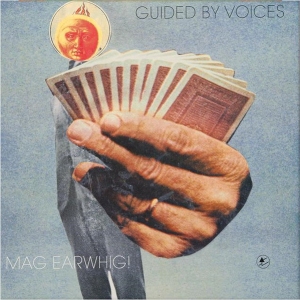
Perhaps I would have become a Guided by Voices obsessive far earlier if the first full-length I picked up wasn't Mag Earwhig!, Robert Pollard’s first Guided by Voices album after the dissolution of the “classic era” lineup. (It's not quite a clean break—Tobin Sprout gets a couple of writing credits, “Jane of the Waking Universe” is a glorious final hurrah for the previous lineup.) Mag Earwhig! is an odd mix of comparatively polished classic rock, solo vocal-and-guitar fragments, and occasional reminders of the previous three albums’ melodic indie rock. Hiring Cobra Verde as his new backing band was not wholly unfruitful for Pollard, as it started a long-term collaborative relationship with guitarist Doug Gillard, but it didn’t stick, and soon Pollard was off to find a new lineup.
To put it diplomatically, Mag Earwhig! is a less-than-ideal introduction to the band. Lead single “Bulldog Skin” is one of my least favorite Guided by Voices songs, a lunkhead rock anthem with a remedial rhyme scheme. The album’s most lasting song, “I Am a Tree,” was penned by Gillard for his previous band Gem, and while I enjoy it as a showcase for the group’s new guitarist, it's essentially a cover. Many of the full-band songs sound like a car stuck in second gear trying to go up a hill. Some of the solo snippets could correctly be dismissed as filler. Situating these two styles next to each other is far more jarring on Mag Earwhig! than on previous records.
Patient listeners will be rewarded, though. (I was not a patient listener at seventeen, and I certainly did not know the context of the album.) “Learning to Hunt” is a spectral ballad that, if memory serves, had been floating around Pollard’s brain since the ’80s (there was also an aborted 1988 album called Learning to Hunt). It’s one of my all-time favorite GBV songs. The melancholic “Sad If I Lost It” is an excellent mid-tempo rock song with deeper production values than GBV had previously employed. “I Am Produced” lasts just over a minute, but makes a complete statement in a way that few other songs here do, short or long. “Portable Men’s Society” splits the difference between meat-and-potatoes classic rock and prog-rock flourishes. The previously mentioned “Jane of the Waking Universe” could fit on a half-dozen other GBV albums and shine. And the tidy, alt-rock strut of “Mute Superstar” is surprisingly successful. Mag Earwhig! isn’t a complete disaster, but one of Pollard’s contemporaneous solo albums would offer a more consistent, rewarding listen.
Warp and Woof, 2019
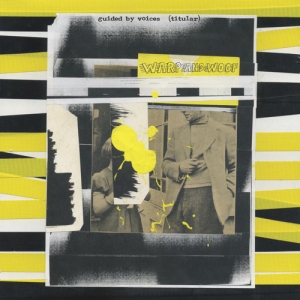
The second of Guided by Voices’ three full-lengths from 2019 (Robert Pollard would be the first one to remind you that Zeppelin Over China was a double album), Warp and Woof grabbed me in a way that the half-dozen albums which preceded it did not. Most likely my brain had finally recovered from the massive dosage of Pollard compositions from 2015 to 2016 and was simply ready to give a new Guided by Voices album a proper listen. I’ve done similar deep dives with other artists, and while I generally believe that immersion in an artist’s catalog is beneficial, encouraging connections between songs, between albums, there’s usually a point when my capacity to process additional material shuts down. When I fully committed to The Fall a few years ago, it happened during their early ’00s albums, and I recognized that continuing would be a disservice to the remaining albums. I will listen to those albums at some point, just like I circled back to all of the post-Please Be Honest GBV albums last year, and hopefully I’ll enjoy those later Fall albums as much as the recent GBV releases.
Putting aside whether my initial appreciation of Warp and Woof had as much to do with timing as anything else, there’s another clear reason why it worked for me: the songs are all short. 24 songs in 38 minutes! Only two songs top two minutes! The benefit of this approach is most apparent in “Dead Liquor Store,” a song I enjoy except for one tremendously irritating section. That section lasts a whopping twelve seconds and does not repeat! Who cares! Not every song on Warp and Woof is as compelling as “Angelic Weirdness” or “Mumbling Amens,” but the return to the classic era’s penchant for brevity is welcome.
Under the Bushes Under the Stars, 1996
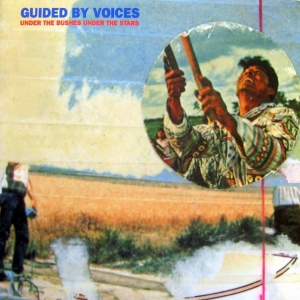
Similar to Frank Black’s 22-song Teenager of the Year, it took me longer to get into Under the Bushes Under the Stars because there’s simply so much to hear. Teenager didn’t click as a whole until I started listening to its second half as a separate album, and so I tried the same approach with UTBUTS (a time-saving acronym, yes, but also quite enjoyable to say), and it worked wonders. It also helped that many of my favorite songs here—“Don’t Stop Now,” “Office of Hearts,” “Big Boring Wedding,” “Redmen and Their Wives”—appear in the home stretch. If UTBUTS isn’t my favorite GBV, it’s a close second to Bee Thousand. It depends on the day and which album I played most recently.
Given that status, it is interesting how much Pollard and company struggled with recording this material. There are numerous drafts of this era of material with alternate titles like The Power of Suck (when Pollard envisioned it as a concept album about a band dealing with unexpected adulation and the temptation to sell out, with “Don’t Stop Now” as its closer), and the final version credits four producers including Steve Albini and Kim Deal. In contrast to the nonexistent recording budget for Alien Lanes, UTBUTS brought the group to 24-track studios for the first time. Even after the album was ready for release, there were still doubts about its track listing, with the final six tracks (conceived of as a separate EP) not listed on the back cover. It’s clear that Pollard felt the tremendous pressure to succeed, which drove both the material (even after the concept album was abandoned) and the logistical decisions. While this pressure surely contributed to the end of the “classic lineup,” it’s hard to argue with the end product.
Tigerbomb EP, 1995
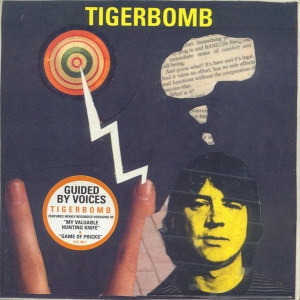
It’s exceptionally rare that a re-recorded song will improve upon the original. In most cases, it feels like an admission of defeat—the label doesn’t believe we can write anything as good as a song from our last album—so even when the new version is passable, like Shudder to Think’s polished take on “Red House” on 50,000 B.C. (their third version of a song that originally appeared six years earlier on 1991’s Funeral at the Movies), I can’t help but wonder whether it needs to exist. Guided by Voices did it a couple of times in this era, with a single mix for “Motor Away” that failed to improve on the Alien Lanes original, but they hit it out of the park with new versions of “My Valuable Hunting Knife” and “Game of Pricks” (a top-five GBV song by any measure). I don’t know if they got any grief for this move at the time—anecdotal evidence suggests most people prefer the Tigerbomb versions—but I suspect the impetus for new versions came as much from Robert Pollard as Matador Records. He knew those songs could sound bigger, could sound bolder (the more important distinction), and there’s an energy to the new takes, especially on “Game of Pricks” that’s enthralling.
Of course, given that it’s Guided by Voices in 1995, there are four other songs on this seven-inch, with two notable tracks to mention. “Mice Feel Nice (In My Room)” features the first appearance of future mainstay Doug Gillard on guitar, while Tobin Sprout’s “Dodging Invisible Rays” is every bit as good as his stellar contributions to Under the Bushes Under the Stars. I'm generally reluctant to play the "Why didn't this make the album?" card but it stands to reason here.
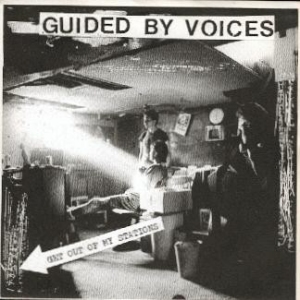
Get Out of My Stations EP, 1994
I’m not a completist for Guided by Voices’ seven-inch singles by any means (that’s practically a full-time job), but during the early-to-mid ’90s, the band had a welcome penchant for putting only non-album material on their singles, so I’ll pick such titles up when I find them at reasonable prices, which I’ve been fortunate to do at stores like Mystery Train and Amoeba. (With few exceptions, this EP-only trend went away in the late ’90s and did not come back, and no I’m not going to collect all of the first reunion era singles with one or two b-sides on each, let alone indulge the band’s new habit of releasing its new albums over four seven-inches.) The band had a seemingly infinite supply of short, occasionally inspired songs that sound like they were recorded in a basement bathroom by a mic on the first floor. (That supply was furnished by years upon years of low-stakes home recording during weekend hangs with his friends/band.) If Guided by Voices ever truly earned the lo-fi label, it was on these singles.
Get Out of My Stations features seven tracks “recorded by Tobin Sprout in the Snake Pit,” although unless Robert Pollard had an infestation, that's just his basement. The two keepers are on the b-side: the languid strummer “Dusty Bushworms” offers a lovely chorus melody, while the delicate “Spring Tiger” uses two of its four tracks on carefully arranged vocals. If you’re in the mood for a flight of fancy that could have been written as it was being recorded, the British Invasion play “Melted Pat” will hit the spot.
The Grand Hour EP, 1993

This early Guided by Voices EP features an actual classic in “Shocker in Gloomtown,” a charging, drum-led crowd-pleaser that remains in their sets today. It was later covered by The Breeders on the Head to Toe EP (peep the video with GBV peering in on The Breeders), alongside a rendition of Sebadoh’s “Freed Pig.” Kim Deal’s later band The Amps covered Guided by Voices’ as-then unreleased “I Am Decided” on their lone, highly recommended 1995 album Pacer as part of an arrangement for Deal’s production services on Under the Bushes Under the Stars.
The Grand Hour is also noteworthy for featuring the title tracks for their next two albums, “Bee Thousand” and “Alien Lanes,” and if you are wondering whether these songs should have been saved for their namesake LPs, no, dear reader, it’s a clear no. “Alien Lanes” is a noisy (well, noisier) garage-punk headache, while “Bee Thousand” alternates between a half-baked song and a “Wubba-wubba-wubba” sing-a-long that my dog did not understand in the slightest.
Plantations of Pale Pink EP, 1996
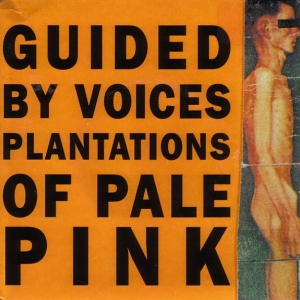
Plantations of Pale Pink bears a few interesting distinctions from the previous two EPs: it came out on Matador instead of a much smaller indie label (skimming through Discogs, it seems like any label that wanted a piece of Guided by Voices in 1993 or 1994 got something to release); it’s chronologically tied to Under the Bushes Under the Stars, an album which produced no shortage of non-album material; and it flirts with mid-fi production values at times. Most of the songs appeared on earlier drafts of UTBUTS (as listed on GBVDB), although oddly not the EP’s best track, “The Who Vs. Porky Pig,” which could have easily possessed a different title until Pollard came up with that gem. “Subtle Gear Shifting” is close to a keeper but the pulsing guitar part going in and out of phase with the rest of the song made me leave the room for a minute.
There are plenty of blogs devoted to covering every piece of Guided by Voices ephemera in detail, and while I appreciate their commitment and read countless posts when I initially ran through all of the singles, I can’t quite muster their level of enthusiasm for Pollard’s outtakes (of outtakes of outtakes of outtakes). Yes, Plantations of Pale Pink holds together reasonable well as a piece, and yes, there are a couple of songs that stand out, but aside from Tigerbomb, I only find myself putting on the EPs if I’m specifically playing the EPs. I’ll always reach for an album first.
Bee Thousand, 1994
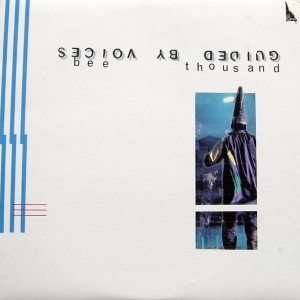
I was exceptionally lucky to grab both Bee Thousand and Alien Lanes on vinyl from Parasol Records in Urbana when I did; Parasol never had many used LPs for sale, and whoever priced those records at five dollars apiece did me an exceptional favor. I bought them when CD was still my default format (the full switch to vinyl occurred a few years later), and I’m not sure if I would’ve appreciated these albums in the same way if they’d been on CD. I might have been tempted to skip around to the crowd-pleasers, to play “Gold Star for Robot Boy” a couple of times in a row before switching to another disc, like I did with the inconsistent Mag Earwhig!. To repeat common wisdom, Bee Thousand works as a whole far better than individual parts, many of which are thoroughly odd when removed from the precise tapestry of the album.
That isn’t a new or profound insight. The 33 1/3 on Bee Thousand even mimics the album’s woven-together fragments for its approach (the end results do not match; that book is more tedious than ingenious). But it’s interesting hearing Bee Thousand after playing its outtakes on King Shit and the Golden Boys and a few of the early ’90s singles (with the distant buzz from the first Suitcase echoing in the back of my mind). Maybe the next level of Guided by Voices obsession is being able to mentally substitute in songs from the back half of King Shit for “Demons Are Real” and understand how that would ripple through the rest of the album, a kind of armchair GMing for a band's catalog. (Pollard did throw a no-hitter, after all.) I don’t suspect I’ll ever reach that point, especially considering how much the Director’s Cut of Bee Thousand bugged me. I appreciate the editorial acumen of the original version too much. It’s true that some deep-cut b-sides are better than songs that made Guided by Voices’ big albums (Deeming “Shocker in Gloomtown” better than “Demons Are Real” doesn't feel like a hot take), but being able to recognize the right songs, when you have that many songs to choose from, is a far more impressive skill than just sifting out the gold.
Isolation Drills, 2001

The second and final album from Guided by Voices’ brief tenure on TVT (a label I foremost associate with Nine Inch Nails’ Pretty Hate Machine, and I'm giggling from the thought of a GBV cover of "Terrible Lie"), Isolation Drills brought the production values back down to earth after Do the Collapse’s perceived new wave / Big Rock excess. Employing Rob Schnapf, best known for his work on Elliott Smith’s records, Robert Pollard found a level of polished rock production more attuned to his liking. Schnapf even recruited Smith to play piano on the album’s penultimate track, “Fine to See You,” one of several tastefully applied supplements (the Soldier String Quartet returns from Do the Collapse, longtime friend Tobin Sprout plays piano on “How’s My Drinking,” and future producer/“solo” collaboration Todd Tobias adds “noises”). It’s an immediate, satisfying sound, although the readily available demos for this album, recorded at Dayton’s Cro-Magnon Studios, might appeal more to some longtime fans.
Isolation Drills holds a different status with me than many of the Guided by Voices full-lengths I’ve played today. It falls a touch short of the unimpeachable classic territory of Bee Thousand, Alien Lanes, and Under the Bushes Under the Stars, but it’s excellent through and through, escaping the inconsistency that dings many of their post-UTBUTS LPs. It’s a focused rock record with only a couple songs falling under three minutes. There are clear highlights—“Glad Girls” is an enthusiastic sing-a-long, the melody of “Chasing Heather Crazy” is infectious, “Twilight Campfighter” hangs in a wistful breeze—but the rest of the songs keep pace. Consistency is a strange concept in Robert Pollard’s world. I wanted to hear all six of the initial reunion records, even if most of them are noticeably spotty, because I knew Pollard (and Sprout) would divvy out a few gems on each one. There was a consistent reward to those albums and some of his later solo records, even if the records themselves do not offer a consistent level of quality. I’ll gladly take the middling material if it means I get a “White Flag” on The Bears for Lunch. In a weird way, I engage more immediately with those albums than Isolation Drills or the most recent half-dozen LPs, which maintain a baseline level of quality in a way that doesn’t showcase the gems as clearly. With a spotty record, my ears perk up when a great song pokes it head out of the brush. It takes me longer to fully appreciate a consistently solid Guided by Voices album.
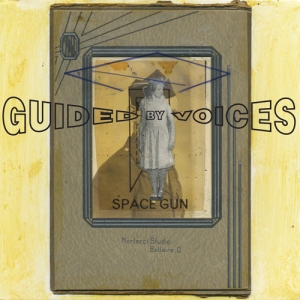
Space Gun, 2018
I could fit one more Guided by Voices album in today, and even with thirteen LPs and four singles down, I still had plenty of options. My main goal was to play the classics and represent the different eras that could be represented (apologies to the pre-Propeller years: my quick take on those records is that hearing GBV start off as R.E.M. college rock on 1986’s Forever Since Breakfast was a surprise, the next couple of albums had their “finding our way” charms and some muffled keepers mixed in, and I found Same Place the Fly Got Smashed to be better in theory than execution, a point of disagreement in my email chain with Scott, a staunch proponent of that album), and having done that, the last couple of albums I pulled were simply ones I wanted to hear. Space Gun feels like the right choice: Scott gave me a copy of it for my birthday last year and, like Isolation Drills, it doesn’t fuck around.
Perhaps this sense comes from having already played 273 Guided by Voices songs before throwing it on, but Space Gun is an often hilarious album. There’s an ecstatic silliness to the opening title track, in which Robert Pollard insists “You are Space Gun!” over Doug Gillard and Bobby Bare Jr.’s lava-flow riffage, so ecstatic that they run by the four-minute mark without me even noticing. “Colonel Paper” offers the nonchalant “Cigarette eater / Eat a cigarette, man.” “Blink Blank” is positively loopy, with utterances like “I lost an umbrella / Looking for you in a shit storm,” “Experts are pondering a lost monocle,” and “Gonesville station / It’s Zonksville nation” building up to “I’m going blink blank / In a shit storm.” I previously mentioned how ripe Pollard’s poetic reverie is for parody, but I don’t think that finding these songs funny is dismissing their merits. They are funny, just like “Learning to Hunt” and “Things I Will Keep” are profound and wistful, just like “Game of Pricks” is defiant.
|
|
Given the overwhelming success—I finished and posted it, which counts as success in my book—of my previous entry of the Social Distancing Singles Club and the arrival of six reinforcements from Reckless Records in Chicago and my recent reorganization of my seven boxes of singles and the lack of any specific plans for today or any day in the foreseeable future, I’m having another go at listening to and writing about a tall stack of seven-inch singles in one day. Today the number is twenty-five. As the saying goes, “not all heroes wear capes.” I could wear a cape right now though, I’m sure it would amuse my kids.
Emeralds / Fresh Air, Soundesign, 2009

The Cleveland-based electronic trio Emeralds compiled quite an interesting discography, in which they put five “proper” albums (including the logical starting point for newcomers, 2010’s Does It Look Like I’m Here) and approximately a million supplemental releases (a closet full of cassettes, splits, EPs, and singles) more typical of a noise act. Their set-up—arpeggiated synths, analog synths, and guitar—allowed for plenty of room for exploration, with tracks ranging from concise and melodic songs (“Candy Shoppe”) to driving arpeggiated material (some of the soundtrack to Stranger Things is incredibly close to Emeralds’ territory) to drifting, pastoral soundscapes. And yet I’ve largely stuck with Emeralds’ major releases or its members’ solo works (Mark McGuire’s Get Lost and Steve Hauschildt’s Tragedy and Geometry in particular) without diving into that vast amount of additional material. This single is a toe-dip, but a promising one; the first untitled song is in the melodic vein and a superlative way to start my day, and the flip is less structured but no less inviting.

My initial exposure to Rafael Anton Irisarri was through a few of his collaborative ventures: in 2012 he teamed with Benoît Pioulard as Orcas, and “I Saw My Echo” was a showstopper on their self-titled debut (I need to spend more time with 2014’s Yearning), and in 2017 he worked with Julianna Barwick on Thesis 10, a four-song EP that scans very much as “Would you like to hear Julianna Barwick with processed synths behind her vocal loops?” (unsurprisingly, the answer is “yes”). I saw this single as I flipped through Reckless’s digital catalog of seven-inches and ordered both it and his 2019 album, Solastalgia (which appears to need a second pressing). The b-side of the single, “Watching as She Reels,” is particularly great; Irisarri elevates an already compelling combination of muted synths and piano with an extraordinarily affecting cello performance. As you would expect from a ten-year jump in his catalog, Solastalgia occupies a different space, somewhat reminiscent of mid-period Tim Hecker (Harmony in Ultraviolet and An Imaginary Country), but darker and more introspective.
Les Savy Fav / “Hold onto Your Genre” b/w “Meet Me in the Dollar Bin,” Monitor, 2004
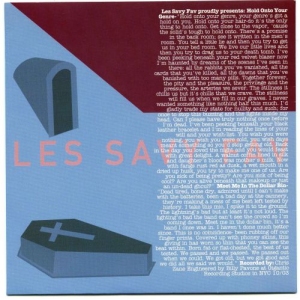
Les Savy Fav evaporated a year or two after their 2010 album Root for Ruin (its songs sounded better live, but don’t they all), with Seth Jabour and Syd Butler joining Girls Against Boys’ Eli Janney in the band for Late Night with Seth Meyers in 2014. (You might think that having those musicians and adding Marnie Stern a few years later would make the show appointment viewing for me, but sleep wins out, time and time again.) They played a couple of shows around the beginning of 2019 and I wondered if anything new would come out of them, but so far, nothing major. Not the best time for a reunion tour, but here’s an idea: put Inches out as a 2LP set. The compilation of nine seven-inch singles originally came out in 2004 as a CD/DVD combo, and featured many of Les Savy Fav’s best songs, including the two on this particular single. It’s true that some of the singles are not hard to come by, but the ones with the best songs, like “We’ll Make a Lover Out of You,” “The Sweat Descends,” and “Meet Me in the Dollar Bin,” are not found in the dollar bin. (I was amused that the sides on my copy of this single were mislabeled, with “Meet Me in the Dollar Bin” playing as the a-side, which is how it should have been anyway.) Reissue this material, throw in the DVD if you so desire, tour when/if the world comes back to normal.
The Karl Hendricks Trio & Mothra / Hooked on Hobbit, Egg Yolk, 1994
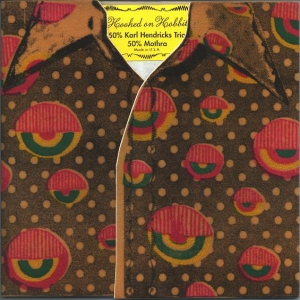
I have plenty of memorably strange seven-inch sleeves, but this split single marked the first time that the record was housed in a fuzzy-textured shirt with a Velcro catch. I’ll buy any vinyl I find from the dearly departed Karl Hendricks, the Pittsburgh indie rocker whose casually scorching leads and humorously confessional lyrics appear on, by my count, nine albums and nine singles, not all of which made it to vinyl. (My personal favorite, 2003’s The Jerks Win Again, was CD-only.) Hendricks also played bass for Damon Che’s Thee Speaking Canaries on The Joy of Wine and Songs for the Terrestrially Challenged, endearingly idiosyncratic and hard-hitting collisions of math-rock and Van Halen cosplay. This particular single is what the kids refer to as a “deep cut,” with Hendricks’ “Catch the Wind” chalking up as a ramshackle, buzzed tale that was smartly kept off of one of his albums. I was previously unfamiliar with Mothra, but judging by their Discogs page, the sleeve design is more in their wheelhouse, with their lone single packaged in red felt and their only full-length album coming in a CD “box.” It would’ve been nice if their sound had been related to the beloved Rodan, but instead it’s fairly nondescript, flanger-heavy indie/alternative rock from the early ’90s.
Pissed Jeans / “Sam Kinison Woman” b/w “L Word,” Sub Pop, 2010

I don’t have a great excuse for taking this long to get into Pissed Jeans (long, unbroken stare after typing that phrase), but my gateway for their sludgy, hardcore-derived rock was the band’s hysterically funny videos for “The Bar Is Low,” “Romanticize Me,” and “Bathroom Laughter.” Some bands have inventively humorous videos and dead-serious music, but Pissed Jeans thrive on the juxtaposition between the stereotypically masculine profile of their music and Matt Corvette’s lyrics, which undercut every angle of such perceived bro-posturing with self-deflating commentary and/or willful stupidity. Case in point is the b-side of this single, “The L Word,” a forceful trudge of a song with the lyrics “Love is a word I use to describe / The way I feel inside / I love this pie / I love a good surprise / I love Velvet Sky / I love the Flyers.” It ruminates on those thoughts for six minutes, although according to this informative Facebook post that dives into the song, somewhere there’s a CD-R with a version that goes on for thirteen minutes. I also ordered a copy of the band’s fourth album, Honeys. Corvette runs a monthly music blog called Yellow Green Red that is an excellent read, support your local blogger.
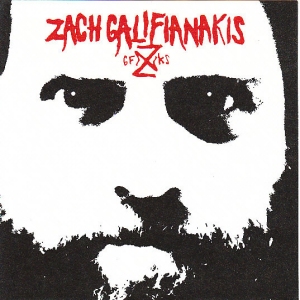
A few years before he broke out in the mainstream with 2009’s The Hangover, Zach Galifianakis released this comedy rap song, which is somehow way, way dumber (and more enjoyable) than even the stock “My name’s So-and-So and I’m here to say / I love rap music in a major way” default. Every aspect of the song is remedial, and yet Fiona Apple appears to drop the hook in the chorus (“If you show me your fanny pack, I’ll show you my fanny”) and the list of call-outs in the outro, returning the favor of Galifianakis appearing in her video for “Not About Love.” (I return to Galifianakis and Will Oldham’s video for Kanye West’s “Can’t Tell Me Nothing” once a year and it always delivers.) Chunklet pressed the song, along with a Best Show-related Ted Leo and the Pharmacists track, on a seven-inch in 2008, and I got the “hardcore” cover edition. Ted Leo’s song on the flip side, “Rock N Roll Dreams’ll Come True,” is an excellent, catchy dose of the power pop you’d expect from Leo, although it’s actually written by Tom Scharpling and Jon Wurster and originally performed by the Gas Station Dogs on WMFU’s The Best Show. Coming after “Up in Them Guts,” it also serves as a necessary mental reset on what music usually sounds like. Fiona Apple sadly does not appear on it.
Paul Newman / ...Please Wait During the Silence, Twistworthy, 1997

Paul Newman was a primarily instrumental band from Austin with two bassists, one of whom named Paul Newman (no, not that Paul Newman), who played a mix of math- and post-rock, with occasional touches of post-hardcore and emo. This 1997 single was their first release and the liner lists their shows to date, all of which were in Texas, only one of which was at a wedding reception. They hadn’t quite found their sound yet—when I learned that a friend once dated Paul Newman of Paul Newman, I asked her if he lived in a chorus pedal factory—and “Clear Baby” goes heavy on the ’90s emo semi-screamed vocals. They released two albums on Trance Syndicate Records, both of which I have on CD somewhere, one album on My Pal God that I own on vinyl, and a final album in 2005 on Emperor Jones that I don’t recall having heard. This particular single was included on a 2001 My Pal God CD compilation of the band’s non-album work called Re-issue! Re-package! Re-package! Re-evaluate the Songs , which also featured “Way to Breathe, No-Breath,” their contribution to a great split single with the band Sonna in which they each played the same song in their respective styles. Drummer Tony Nozero also played in the band Drums and Tuba, bassist Edward Robert is also in I Love You But I’ve Chosen Darkness, and guitarist Craig McCaffrey designed the sleeves for a ton of Kranky Records releases.
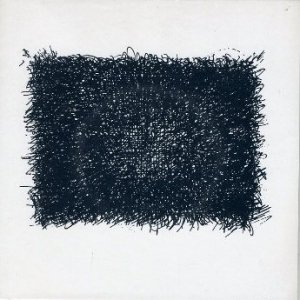
Light / “Turning” b/w “Presence,” Wurlitzer Jukebox, 1995
I was unfamiliar with the UK-based space-rock / drone artist Light until coming across his 1996 LP Turning at Chicago’s Dusty Groove Records a few years ago, but there were enough signifiers that it would be of interest to me (came out on Wurlitzer Jukebox, the cover looks like something from Kranky Records, related to Flying Saucer Attack) that I took a chance and picked it up, finding this single shortly after at Reckless. It’s interesting that “Turning” does not appear on the album Turning, but “Presence” is the better song anyway, reminiscent of Windy & Carl’s drones with an addition of rhythmic textures. He released two other albums and two additional singles, none of which I’m particularly compelled to track down, but would buy on the cheap if I encounter them in a discount bin.
Colin Newman / “B”+ 2, Beggars Banquet, 1980
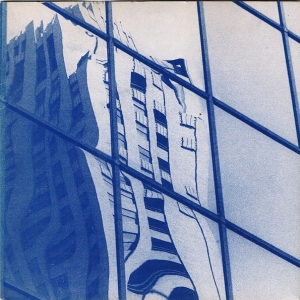
Oh to have been a fly on the wall in a meeting between Beggars Banquet and Colin Newman in 1980 when they were discussing which song to release as the single from his post-Wire solo debut, A–Z. That album is not always easy listening, a trait I suspect was quite intentional, and despite some logical choices in “& Jury” (one of my favorite songs ever), “I’ve Waited Ages,” and “Order for Order,” the album was preceded by “B,” an atonal, if weirdly catch near-instrumental track, interrupted only by wordless screams. Furthermore, it was accompanied by the bizarre video for “B,” which has costumed anti-performances. While I strongly believe the album would have gotten more commercial success if “& Jury” had been the lead single, there’s an interesting trade-off at play. “& Jury” is more straightforward than the rest of A–Z, while “B” tempers expectations for the melodic post-punk that Newman delivered in Wire, framing the album as a standoffish art-rock statement. And while the end result is somewhere in between those two poles, listeners hoping for ten more songs like “& Jury” would have been headed for disappointment. This single features two b-sides: the lurching “The Classic Remains” and “Alone on Piano,” a stripped-down rendering of the haunting track that would later appear in the movie The Silence of the Lambs.
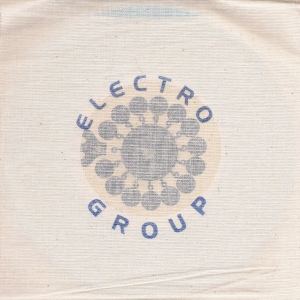
I absolutely bought this single at Parasol Records because of its packaging, which slid marbled blue vinyl into a cloth bag with a button on it. I’d never seen a sleeve quite like it, and the fact that I ultimately enjoyed the music still comes a distant second to “Oh that’s the single with the cloth bag!” in my memory banks. Electro Group hailed from Sacramento and played a heavy form of American shoegaze, reminiscent of the Swirlies, All Natural Lemon and Lime Flavors, Lilys’ In the Presence of Nothing, and of course My Bloody Valentine, with feminine-inflected vocals and more prominent bass than most other groups in the genre. I have their 1998 debut single, “Lifter” b/w “Green Machine,” and their 2000 debut LP, A New Pacifica, on vinyl, but was unaware that they returned in 2017 with the album Ranger. Revisiting “Line of Sight” and “Allstar” (mercifully not the Smashmouth song that haunts me), I’m gently encouraged to spend some time with those other two records in my collection and see how they developed later.
Dot Allison / “Colour Me” b/w “Tomorrow Never Comes,” Sub Pop, 1999
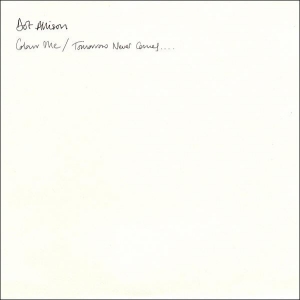
I heard Dot Allison because of Arab Strap’s remix of “Message Personnel” from her 1999 solo debut Afterglow, which stretched the song out to nearly seven minutes with slide guitar and meditative vocal layering. (It was good enough to be included as a bonus track on the regular pressing.) I was unfamiliar with her past in the UK electronic group One Dove, which came up recently when their producer, noted electronic mogul Andrew Weatherall, passed away. As for her solo work, I only know Afterglow (its first two songs are included on this Sub Pop single, perhaps as a way to expand her audience) and its 2002 follow-up, We Are Science, which took a chillier, more explicitly electronic approach to the production (although Mercury Rev apparently helped produce a few tracks). “Colour Me” is closer to what I remember of Afterglow in its late-stage trip-hop trappings, while “Tomorrow Never Comes” is a sometimes compelling, sometimes off-putting combination of bland adult contemporary pop, alt-country, and folk.
Benoît Pioulard / Flocks, Blue Flea, 2009

I recently picked up a different Benoît Pioulard single from Encore Records and had a conversation about the Michigan native’s catalog, which is ever-expanding and a touch overwhelming. His 2006 debut Précis was one of my favorite albums from that year, a surprisingly melodic combination of hushed folk, slow-core indie rock, and texturally rich post-rock. I initially tried keeping up with his output, but like Emeralds, there’s an a-path of major releases and a b-path of minor releases, and I found myself lagging behind by 2010’s Lasted. He keeps releasing albums, I keep hearing about them and thinking “I should check that out,” but two things typically diminish my momentum. First, the hooks of Précis don’t pop up often enough; second, I always suspect I’m missing out on the release that would properly pull me back in. Adding to this conundrum is how, when I have picked up a single like Flocks (which I fittingly got at Stormy Records a few years ago, given that it was released on Windy & Carl’s label Blue Flea), I’m happy to revisit his sound. Half of Flocks is more structured than some of his later full-lengths, with the a-side “Maginot” offering both a nice vocal melody and a neat harmonic line before its droning outro, while the b-side “Alaskan Lashes” is a formless instrumental. More of the former, please.
Sonna / “Kept Luminesce” b/w “Mirameko,” Static Caravan, 2000
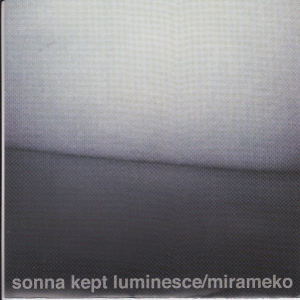
Sonna was a Baltimore-based post-rock band, whose members included guitarist Jeremy DeVine (the proprietor of Temporary Residence Limited, the label which released most of the band’s music) and drummer Jim Redd (who later joined Tarentel). I don’t know if I first heard them from their split single with Paul Newman, on which they performed a slower, lush take on “Way to Breathe, No-Breath,” or their 1999 EP These Windows Are Pistons (the opening song of which is tremendously evocative of lightly falling snow), but I later picked up their 2001 LP We Sing Loud Sing Soft Tonight and this single. “Kept Luminesce” is halfway between a crescendo-free post-rock song and the lighter pop touches of The Sea and Cake, with the vocals residing in Sam Prekop’s restrained register as the drums shuffle briskly underneath. “Mirameko” is an instrumental with intertwined, mostly clean guitar lines, masticating on melodic phrases. It wasn’t long after I picked up and enjoyed this single that Temporary Residence included it on the 2016 non-album material compilation Keep It Together.
Jud Jud / X The Demos X, No Idea, 1997/2007
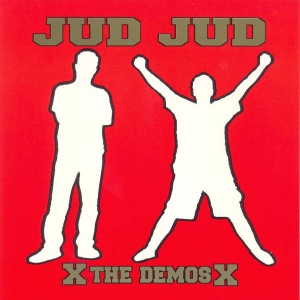
Two anecdotes about this single from storied a cappella hardcore duo Jud Jud: First, if you’re a new visitor to my house and you are unfamiliar with the storied a cappella hardcore duo Jud Jud (and not an elderly relative), there is exceptionally strong chance that I will play the entirety of this single before you leave. Look, that’s the deal. Second, when I moved from Massachusetts to Michigan last summer, I did that drive three times in a little over a week and a half (drove sixteen-foot rental truck, flew back, drove my car and the pets, flew back, drove my wife’s car). In order to maintain consciousness / sanity while driving, I made an extraordinarily long playlist to put on shuffle. At the time I meant to write about that experience and that playlist, but in hindsight, I was too busy driving from Massachusetts to Michigan to write about what music I listened to while driving from Massachusetts to Michigan. The biggest take-away from the playlist was clear, though. Any time that a Jud Jud song came up, it brightened my mood. Just a sheer delight to be driving through western New York and have “X Rounds of Jud Song X” come on.
Season to Risk / “Mine Eyes” b/w “Why See Straight,” Columbia, 1993
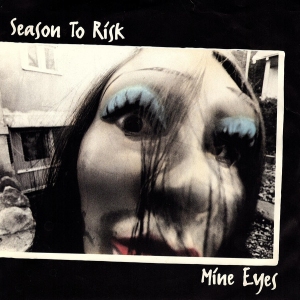
Allen Epley of Shiner / The Life and Times has a podcast called Third Gear Scratch in which he talks with artists (primarily musicians) about their work and lives, and one of the more interesting episodes for me was his talk with Steve Tulipana of Season to Risk. Not only because it addressed how Shiner essentially used Season to Risk as a farm team for new members (most notably Paul Malinowski and Tim Dow, but Josh Newton and Jason Gerkin also played in S2R), a point of discussion which was more cordial than expected, but also because Season to Risk is one of the more baffling acts to get a major-label deal. They are not, to say the least, listener-friendly. Their 1993 self-titled debut, on which both of these songs appear, nudges the grinding, atonal rock of The Jesus Lizard and Helmet a step closer to Headbanger’s Ball, but as much as Epley enjoyed doing the “Mine Eyes” vocal on the podcast, they are not a particularly catchy band. Their sophomore record, 1995’s In a Perfect World, is merciless and pummeling to a degree that few records in my collection match, and it’s exponentially more interesting to me than their debut. Absolute commercial suicide, though. I haven’t played Men Are Monkeys. Robots Win. or The Shattering in ages, but I recall them having at least a few shreds of melody in the mix.
Bob Mould / “Classifieds” b/w “Moving Trucks,” Creation, 1998
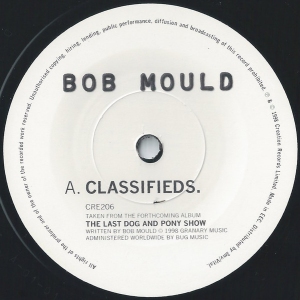
I saw Bob Mould for the first time last fall when he played at The Ark in Ann Arbor, and in advance of the show, I read his autobiography, See a Little Light: The Trail of Rage and Melody and did a little catch-up on his more recent solo work. The book was a mostly compelling look into his upbringing, the formation of Hüsker Dü, his interpersonal disagreements with various band members, his long-term relationships, and the gradual evolution of his personality (when it happened, Bob Mould Club DJ and Electronic Artist was a surprise, but there was a build-up to it in his life). The show was solid: he played a lot of his newer solo stuff, some Hüsker Dü material, a scant few Sugar songs; his signature guitar tone was largely at odds with the vaunted acoustics of the venue; it was nice to be one of the younger audience members for once. The solo album which sourced this double a-side single was 1998’s The Last Dog and Pony Show, which at the time was promised to be his final guitar album (Narrator: “It was not”). At the time I loved Sugar’s catalog but hadn’t heard any of Mould’s prior solo work, and in hindsight, that’s probably for the best, since this was his most direct line back to Sugar at the time. These two songs, along with “New #1” and “Skintrade,” were the highlights of the album.
At the Drive-In & Burning Airlines / “Catacomb” b/w “The Deluxe War Baby,” Thick, 2000
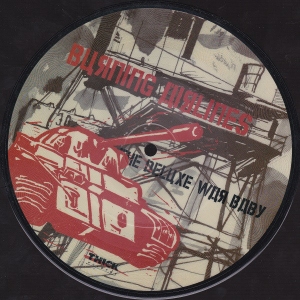
Thick Records was a Chicago-based independent label that put out a lot of picture-disc seven-inches, typically skewing more punk than my usual tastes. I picked up a handful of these singles over the years (Edsel’s “Perched Like a Parasite” is the next one that comes to mind), but none were quite as anticipated as this Burning Airlines / At the Drive-In single from 2000. At the time, Burning Airlines had put out the front-to-back great Mission: Control!, and (if memory serves) ATDI hadn’t yet released Relationship of Command, which would follow later in the year. I was, and still am, far more interested in Burning Airlines’ “The Deluxe War Baby” than At the Drive-In’s “Catacomb,” even though the hype for ATDI at the time was overwhelming. (I remember a friend writing a glowing review of In/Casino/Out for my online magazine Signal Drench.) “The Deluxe War Baby” reappeared on 2001’s Identikit, where its vaguely country-ish lead still thrilled, while ATDI re-recorded their song as "Catacombs" as a Japanese bonus track for Relationship of Command. When At the Drive-In blew up, I assumed this single would be hard to come by in the future, but copies remain relatively inexpensive.
Füxa & Bright / “City & Metro” b/w “How I Reached Home,” Darla, 1997
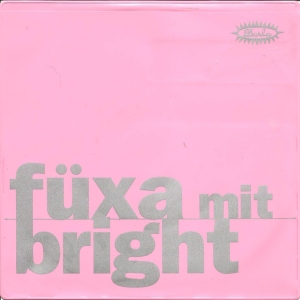
This split single features two aesthetically dissimilar artists from the Darla Records stable. The two-piece Füxa hails from Detroit, playing experimental, mostly electronic music that exists somewhere between Stereolab’s retro-futurism, Windy & Carl’s pastoral drones, and Spacemen 3’s narcotic psych-rock. I have a couple of other scattered releases from their considerable discography, most notably their entry into Darla’s Bliss Out series (1997’s Venoy). Their contribution here, “City and Metro,” starts off like an instrumental Stereolab outtake, and then moves into darker noise in its second half. The Emeralds of the ’90s? Bright was a guitar-rock band from Brooklyn, channeling some amount of Kraut-rock in their hypnotic approach to repetition. They also made a Bliss Out record, Blue Christian in 1997, but aside from another single of theirs that I have (which is in a blue poly sleeve, as opposed to the pink one found here), I’ve spent the most time with their 2005 swan song Bells Break Their Towers, which has a couple of extended, ten-plus-minute-long tracks that leaned into their best tendencies. Their leader, Mark Dwinell, is now a member of the Kranky Records band Forma, whom I had already meant to check out and now will actually check out.
Shannon Wright / “A Tin Crown for the Social Bash” b/w “You're the Cup,” All City Hobo, 1998
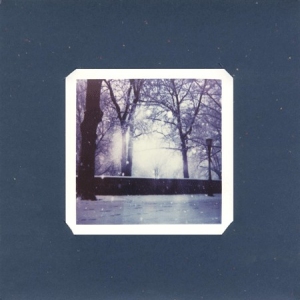
I finally got to see Shannon Wright perform a few years ago when she opened up for Shellac in Providence. Her tours, along with her vinyl releases, primarily occur in Europe these days, and I’m not sure if that trend started before or after her 2004 collaborative record with French musician / composer Yann Tiersen, but it’s a shame American audiences don’t appreciate her more. Her evolution from the nondescript indie rock of her ’90s band Crowsdell (I have a few of their releases and they’ve never registered) to the slightly askew acoustic compositions of her earliest solo days (which include these songs) to the increasingly intense and experimental Days of Tacit and Dyed in the Wool to the alternately thrashing and delicate Over the Sun was a tremendous arc, and I would be making a huge mistake to dismiss her more recent work as less essential. (One of my record store regrets is passing on the original vinyl pressing of 2007’s Let in the Light in a store in Milan, in hindsight that was the obvious place to get it.) Last year I picked up a copy of her solo debut Flightsafety on vinyl and two thoughts prevailed from a recent spin: first, the opening “Floor Pile” remains astounding, one of her best songs; second, hearing the word “quarantine” repeating a ton in “Captain of Quarantine” has taken a decidedly different resonance.
Boy's Life & Giants Chair / “Worn Thin” b/w “Ever Present,” HitIt!, 1995
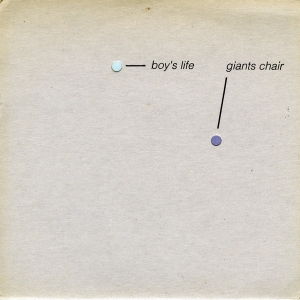
This split single is a battle of the “Is there an apostrophe in this name or what?” bands, and the fact that Boys Life appear on this single as “Boy’s Life” and as “Boys Life” on all of their other official releases causes me no small amount of consternation. They win the battle, not through the apostrophe-insertion trickery, but by virtue of “Worn Thin” possessing greater dynamic range than Giants Chair’s “Ever Present.” (Important note: the Shiner song on Starless is called “Giant’s Chair,” with an apostrophe.) Their command of the transitions between intense, tricky Midwestern rock and cavernous empty space is the most striking aspect of their 1996 LP Departures and Landfalls (reissued on vinyl by Topshelf in 2015), and you get enough of a taste of it here. “Ever Present” is a solid, gear-churning Giants Chair song, just not quite up to the nod-inducing “Single File Accident” from 1996’s Purity and Control. Giants Chair got back together in the last few years and put out Prefabylon last year, which I will listen to at some point, I swear.
Girls Against Boys & Stanton-Miranda / “She's Lost Control” b/w “Love Will Tear Us Apart,” Virgin, 1995
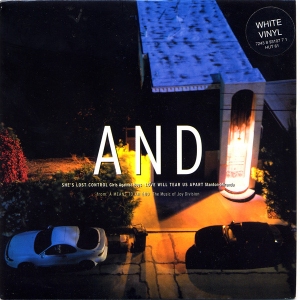
I heard Girls Against Boys’ cover of Joy Division’s “She’s Lost Control” in roughly the same time-frame as the original, having picked up both A Means to an End: The Music of Joy Division (the tribute compilation on which both sides of this single appear) and Permanent (Joy Division’s 1995 greatest-hits compilation) midway through high school. As far as applying your own aesthetic to a cover, GVSB’s “She’s Lost Control” is a triumph, beefing up the clicking rhythm section of the original with the group’s signature two-bass assault and Alexis Fleisig’s pummeling drums. (Said it before, will say it again: he’s one of the most underrated drummers.) I won’t deny that it loses some of the haunting resonance of the original, but it’s a different take. Stanton-Miranda’s cover of “Love Will Tear Us Apart” is less successful, as her smoothly melodic vocals disarm the composition of its tension. I recently saw Stanton-Miranda’s name in the credits for Jonathan Demme’s Something Wild (The Feelies play a high school reunion!) and learned that she also had a tiny part in The Silence of the Lambs.
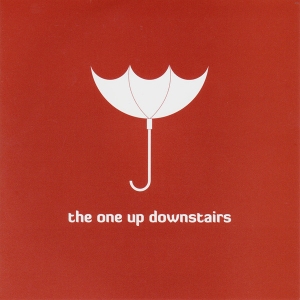
I was unaware of this pre-American Football band when I lived in Champaign from 1999 through 2005, learning of it when Polyvinyl unearthed these recordings in 2009. Mike Kinsella and Steve Lamos’s involvement are less interesting to me than the other half of the group, David and Allen Johnson, who then formed Very Secretary with former Braid drummer Roy Ewing and violinist Rachael Dietkus (both of whom were also in the short-lived Days in December with Castor’s Jeff Garber). Given all this crossover, the existence of another scrambling of familiar names did not come as much of a surprise to me, nor did the actual music. It sounds like a halfway point between the mannered indie rock of Very Secretary’s 1999 debut Best Possible Souvenir and the carefully arranged emo of American Football. It’s not as good as either of those bands, but hey, it exists. Mike Kinsella only singing while David Johnson played guitar is interesting, however, since after Very Secretary broke up, I heard that Johnson no longer wanted to sing, and instead wanted to bring a different singer (supposedly Compound Red’s Greg Steffke) into the group.
The Most Secret Method / Blue, Self-Released, 1996
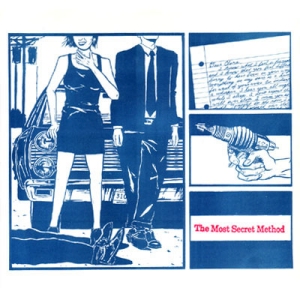
The Most Secret Method were one of DC’s best-kept secrets, with their debut LP, 1998’s Get Lovely (issued by Slowdime), ranking among the finest albums from that era of the scene. They put out a second album in 2002 called Our Success and called it quits, leaving drummer Ryan Nelson to join plenty of other bands. Deep breath: He was in Beauty Pill for a while and contributed the ecstatic title track to the You Are Right to Be Afraid EP [now his wife, Erin Nelson, is in Beauty Pill]; he formed Soccer Team with Melissa Quinley, and their 2015 album Real Lessons in Cynicism was quietly wonderful; he was in the Kalamazoo band Minutes, who pressed too few copies of their fire-spitting records; he was in Routineers, who released one CD and I’ve never heard of them before this instant. As evidenced by the cover of this single and most of his other bands’ albums, he’s also a striking visual artist. They self-released this debut seven-inch, and while they improved considerably by Get Lovely, there’s still plenty here on both the driving DC post-punk song “Blue” and the bass-led instrumental “Perfect Plan” to keep listeners’ attention.
Rex / “All” b/w “Nayramadin Orgil,” Southern, 1995
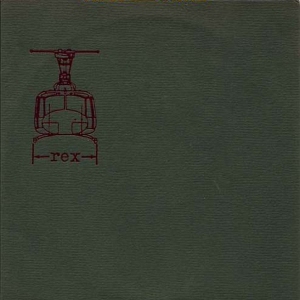
Another mid-’90s indie band that has fallen out of the discourse, Rex was an interesting combination of various trends of that time: slow-core (they featured Codeine’s drummer Doug Scharin), Oldham-esque indie folk/country (particularly in their instrumentation), and post-rock. They released three full-length albums, one EP, and three singles, but I first and foremost remember them for the lead track on their 1995 self-titled debut LP. “Nothing Is Most Honourable Than You” is a back-porch dirge with rickety production, a devastating cello line, wounded vocals, and a still-surprising guitar solo. I would be lying if I said anything else in their catalog meant as much to me as that song, even their second album, 1997’s C, which is better written, better performed, and better produced. This single also came out in 1995, and I don’t know if it preceded the album or not, but there’s a greater degree of clarity to the recordings here. Both songs are nice if somewhat inconsequential, “All” is a pleasant, late-night ode, while “Nayramadin Orgil” is an instrumental that eventually features a mouth harp.
Loscil / Sine Studies 1, Jaz, 2013
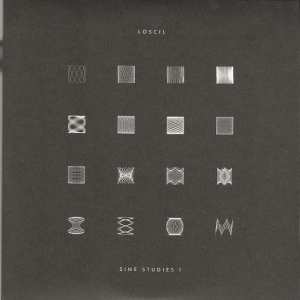
Loscil is one of the few Kranky Records mainstays who has eluded my obsession. I’ve tried to get into several of his full-lengths, but found his brand of ambient to be slightly too cold, too electronic for my tastes. I saw him open for A Winged Victory for the Sullen at T.T. The Bear’s Place in Cambridge (RIP) and enjoyed zoning out during his set but wasn’t emotionally invested like I was during AWVFTS. This single is the only Loscil release that I own, and I distinctly recall picking it up at Aquarius Records in San Francisco (RIP). It’s technically impressive—a smart pairing of deep bass notes and sine wave melodies—but my mental picture involves standing in a temperature-controlled, fluorescent-lit room, watching LED lights flicker on servers.
|
|
A few years ago I started listening to my age in seven-inch singles on my birthday. It helps that I don’t mind embodying a Hard Times piece, not that committing to a bit has ever been my problem. The hurdle for my last birthday was that my stereo was still in the shop, so I indefinitely postponed this yearly ritual for a better day. As horrible, horrible luck would have it, I don’t have anywhere to be this Sunday, so why not self-quarantine myself with at least thirty-nine seven-inch singles? (Fake edit: I made it through listening to and writing about forty-five 45s. Well, some of them play at 33 1/3. I've included Bandcamp / YouTube links whenever possible.)
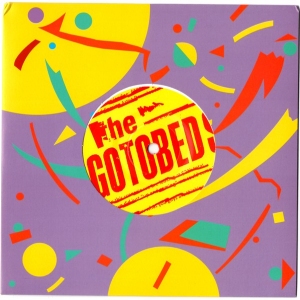
My other Gotobeds singles were compiled on the heartily recommended Fucking in the Future +5, issued by Comedy Minus One in 2017, but fortunately, this joyous, energetic cover of Redd Kross’s first EP is a great way to start off my day. Fun fact: my kids love The Gotobeds. They especially love the song “New York’s Alright (If You Like Sex and Phones),” and almost every time I cover up the ribald parts of the opening lines—“New York’s alright if you can get your dick sucked / Collegiate display of post-classic head-fuck”—with a well timed cough because I’m not ready to have that talk with them yet. Fortunately, there's no harm in them using a Gotobeds can koozie to hold seltzer cans.
Protomartyr and R. Ring / A Half of Seven, Hardly Art, 2015
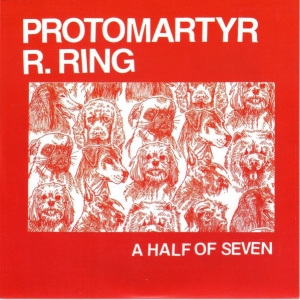
Two Fridays ago I was planning on driving out to Kalamazoo to see Protomartyr perform with Kelley Deal in their lineup, and I was particularly excited to hear them perform the Deal-bolstered “Blues Festival” from this single. It features the tremendously relatable lyric “My brains they run on bad thoughts” and is a highlight of my current running mix, not that I can use the treadmill at the gym for the immediate future. Alas, the show was canceled the morning of, and like countless other shows, I can only hope the country recovers at some point so it can be safely rescheduled. In the meantime, Protomartyr’s new single “Processed by the Boys” has an all-time great video and their next album Ultimate Success Today is due in May. I would be remiss if I didn’t mention how good R. Ring’s “Loud Underneath” is on the flip of this single; I picked up the band’s Ignite the Rest album in Chicago last year and was glad to hear it again.
Warpaint / “NWO (Redux)” b/w “I’ll Start Believing,” Rough Trade, 2016
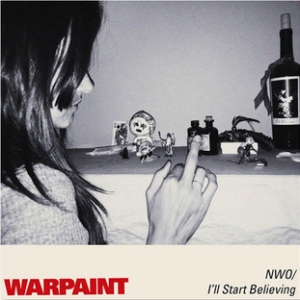
I’ve kept an eye on Warpaint since they released their first EP, but I’ve grown considerably fonder of their melodically charged post-punk over their last few records, particularly 2016’s Heads Up. Early on they had a “sum is less than the whole of its parts” problem, with songs like “Elephant” often getting tripped up by awkward transitions or shoehorned hooks. I credit the addition of drummer Stella Mozgawa with ironing out their songwriting process; their songs excel when built up from the foundation of Mozgawa and bassist Jenny Lee Lindberg (who often carries the melodic load, Peter Hook–style). I don’t know if these two songs, which I enjoy as much as anything else in the band’s catalog, would fit smoothly on Heads Up, but they certainly deserved a better fate than an import-only single.
Arab Strap / “Hey! Fever” b/w “Girls of Summer,” Chemikal Underground, 1997

Arab Strap is stirring again, having recently performed as a duo for a Philophobia retrospective (the album was reissued on vinyl by Chemikal Underground in December), and I would love for another full-blown reunion, given how superb their live sets from 2017 sounded. In the meantime, their discography is exceptionally deep, as proven by this pre-Philophobia single. “Hey! Fever” is a Balearic-tinged pop song with guest appearances from Stuart Murdoch and Chris Geddes of Belle and Sebastian and a lyrical callback to their Arab Strap’s signature song, “The First Big Weekend.” It’s nice, although thoroughly out of sync with a frigid March morning stuck indoors. This studio version of “Girls of Summer” is a faint shadow of the live take from Mad for Sadness (which would easily make my top ten Arab Strap songs), but it’s interesting to hear the starting point for that post-rock rave-up.
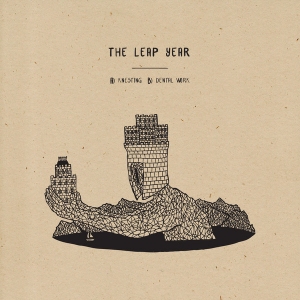
I recently picked up Ten Years (Thank You), Hobbedehoy Records’ 2LP anniversary compilation. I bought it for the exclusive song from The Leap Year, the unusually delicate, acoustic “No Badlands Now,” but the collection holds together quite well, a testament to the varied tastes of the Australian label: post-rock, drone, electronic, shoegaze, and even a touch of emo. The Leap Year only has two full-lengths, this single, and that compilation track, but every song is excellent. “Knesting” lurches between slowcore meditation and bristling catharsis in a way that recalls some post-Slint ’90s indie groups (or perhaps a more bipolar rendition of Jawbox’s “Whitney Walks”), and “Dental Work” is sinewy Midwestern rock from the opposite side of the globe.
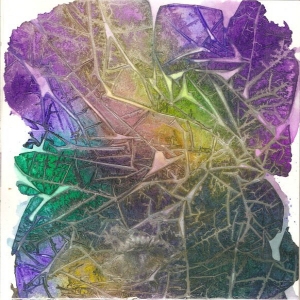
Windy & Carl have a new full-length, Allegiance and Conviction, set for release at the end of this week, and I’m disappointed that I won’t be able to drive out to Stormy Records and buy it from them directly. I bought this particular Windy & Carl single at Stormy during a visit to Michigan a few years ago, and talking at length with Windy was a highlight of the trip. Each time I’ve been there since moving, I’ve had a nice conversation with Windy and/or Carl, and I’ve also accumulated more of the group’s consistently compelling catalog (along with some other excellent records like Kali Malone's The Sacrificial Code). This single ranks near the top, offering two somnambulant dream-pop songs and a hand-painted cover with a vibrant, welcoming palette. I’ll hold off on Allegiance and Conviction until I can pick it up in person, whenever that may be.
Kathryn Joseph / “Weight” b/w “Cold,” Rock Action, 2019
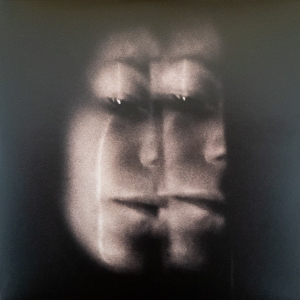
My most disappointing show cancellation of 2019 was The Twilight Sad with Kathryn Joseph, a tantalizing import bill that axed its Boston date after James Graham lost his voice. I’ve seen The Twilight Sad a half-dozen times and I’m sure I’ll see them again, but I haven’t seen the bewitching Kathryn Joseph, whose 2018 album From When I Wake the Want Is possesses a gravitational force. She tours far more sparingly than The Twilight Sad, and whether she’ll make it back to North America at all is a legitimate concern. In addition to her own records, Out Lines, her collaboration with Graham and Marcus MacKay, released Conflats in 2017, and I’m especially partial to its closing track, “These Three Desire Lines.” Their voices work very well together and the arrangements allow plenty of space for the duet to breathe.
Urusei Yatsura / Yon Kyuku Iri EP, Beggars Banquet, 1999

I dove hard into the back catalog of Scottish noise-pop merchants Urusei Yatsura a few years ago after finding a copy of their swan song, 2000’s Everybody Loves Urusei Yatsura. Their mix of Pavement’s smarts, Sonic Youth’s tunings, and Dinosaur Jr.’s fuzz is right up my alley, and while “Slain by Elf” has been a personal favorite since picking up the single at Rhino Records in high school, I was surprised to learn about so many import-only singles that are just as good as anything that made their records. This EP is the shiniest jewel glistening at the back of their deep-cut cave, offering four superlative tracks. “Kaytronika” and the aptly titled “Still Exploding” are noise-pop gems fronted by Graham Kemp, “Nobody Knows We’re Stars” is Kemp’s self-effacing yet still-kinda-affecting acoustic ballad, and “Mother of the MBK” is a sprawling, dynamic contribution from Fergus Lawrie. I looked in countless American stores for this single before finally biting the bullet and importing it (along with a few other Urusei Yatsura singles) from the UK. I still need to find the single for "Eastern Youth" so I can have the b-side The Hearts You Break, though.
Foals / “Red Socks Pugie” b/w “Gold Gold Gold,” Transgressive, 2008
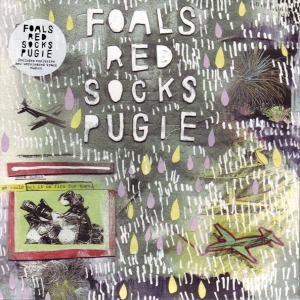
I’m not begrudging their success, but Foals being a very popular band, especially in Europe, is somewhat mystifying to me. The math-rock–infused, melodic post-punk of Antidotes and Total Life Forever (albums I still very much enjoy) possesses greater crossover appeal than, say, Battles, but I hadn’t predicted that they’d be a big Glastonbury act. And yet, that’s what they’ve become, largely trading the latticework guitar parts of “Balllons” and the slow burn of “Spanish Sahara” for chunky riffs and (cough) obvious lyrics on next last few records. Last year they issued the two-part Everything Not Saved Will Be Lost, and my interest was reignited by much of part one (and a comparatively small portion of part two). For a single, “Exits” is an endearingly odd duck (the video still has almost five million views on YouTube), six minutes of off-kilter Tears for Fears homage, but that’s the sort of decision I appreciate seeing. (The meathead rock of Part Two’s “Black Bull,” not as much.) A few tracks even echoed the emotional resonance of “Red Socks Pugie,” which broke through the occasionally clinical Antidotes with some post-emo yearning amid its surging tempos.
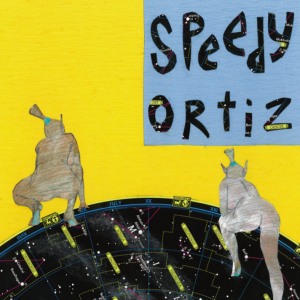
The world deserves a Speedy Ortiz singles/rarities compilation. I don’t know how hard it is to find this particular single, which supercharges two songs from Sadie Dupuis’s earliest Speedy Ortiz recordings with full-band renditions, but there’s plenty more beyond it. Early digital single “Taylor Swift” b/w “Swim Fan” still graces their set lists (and also marks the point where the band sounded like a band), Adult Swim single “Bigger Party” has one of the best lyrical uses of “shithead” in recorded history, the tracks from Foil Deer’s supplemental EP Foiled Again deserve a physical release (particularly “Death Note,” which has a nasty riff), not everyone got the special edition of Twerp Verse with the bonus single, and several other worthy tracks are floating around (like their Liz Phair cover). Hell, put "Cutco" on there because it would be really nice to have "Cutco" on there. Boom, press a thousand copies. A new Sad13 album is due soon, which means Speedy Ortiz will be quiet on new material for a while, the perfect time to prep a singles compilation.
Shiner / “Semper Fi” b/w “A Sailor’s Fate,” DeSoto, 1999
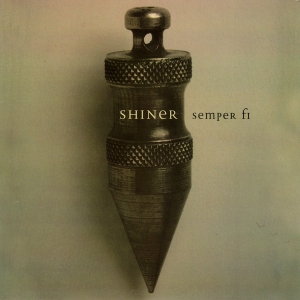
Shiner’s reunion album, Schadenfreude, is due at the end of May, and you can hear “Life as a Mannequin” now. I’m trying not to overdo it on the advanced single, because I know I will listen to the album as a whole a great deal, but the general vibe is Starless with the knowledge gained from five albums with The Life and Times (who remain an ongoing project that you should absolutely keep up with), and I'm pretty happy with that combination. I’m just as excited about the chance to see Shiner again, provided that circumstances improve enough by the end of May (stares blankly into space). I am, however, faced with one of the oddest concert conflicts in my lifetime. The closest currently schedule Shiner date is in Grand Rapids on May 24th, which happens to be the same night as Hindsight 2020 at Matt Talbott’s bar Loose Cobra in Tolono, IL, where Castor, Menthol, and Honcho Overload will be performing. If you’d told me twenty years ago that I’d have to choose between seeing Shiner or seeing Castor, I would be exceptionally confused about the future state of the world.
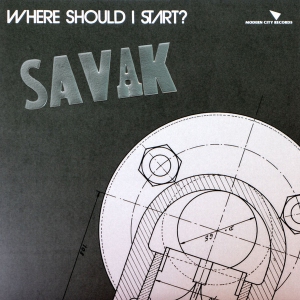
There’s no slowing down Savak, who will soon release their fourth LP (the delightfully titled Rotting Teeth in the Horse's Mouth) since forming in 2015, bolstered by a four-song EP and two singles. “Where Should I Start?” is a propulsive, Krautrock-infused rocker fronted by Sohrab Habibion (formerly of Edsel and Obits, bands with similarly relentless work ethics and consistently rewarding catalogs), while Michael Jaworski sings the brighter “Expensive Things,” which thrives with compositional detail. Savak recently shared a playlist of music from around the globe that was inspiring them lately, and I think that appetite for new and different sounds helps keep the balance of their own songwriting in the sweet spot between fresh and familiar. While this single ranks among my favorite of their releases, the closing tracks from 2017’s Cut-Ups (“I Left America”) and 2018’s Beg Your Pardon (“They Are Not Like Us”) are poignant, politically charged highlights of their ever-expanding repertoire.
Julianna Barwick / “Pacing” b/w “Call,” Suicide Squeeze, 2013

This Julianna Barwick single is among the best seven-inches released in the last decade and a requisite selection every time I play a large stack of singles. (I previously wrote about it here.) As much as I cherish her full-lengths, especially 2011’s The Magic Place and 2013’s Nepenthe, there’s no better introduction to her serenely calming arrangements of vocal loops and gentle piano lines than the a-side “Pacing,” nor a better instrumental respite to be found than the b-side “Call.” Many of her tracks do more in terms of compositional techniques, melodic inspiration, and instrumental variety, but as a distillation of what makes her so crucial to my listening in the last decade, I direct you to this single. She’s been relatively quiet since 2016’s Will, issuing a four-song collaborative EP with Rafael Anton Irisarri (Thesis 10) in 2017 and the five-song cassette Circumstance Synthesis last year, so here’s hoping that another full-length is in the works.
Sunny Day Real Estate / “How It Feels to Be Something On” b/w “Bucket of Chicken,” Sub Pop, 1998

In theory, I don’t need this pre-album single from Sunny Day Real Estate’s original glorious return in 1998, given that the a-side is the title track to How It Feels to Be Something On, and the ingloriously named b-side (written for the soundtrack to The Crow, from which it was rejected, unlike “8,” which made the cut for the Batman Forever soundtrack) has since been included on the vinyl reissue of LP2. But I’m a sucker for this kind of hand-made sleeve, its textured paper reminiscent of countless other care-in-packaging classics from that era (June of 44’s first three releases, the Rachel’s records, Postmarked Stamps singles, etc.). They were bigger than those bands, but still felt connected to the need for a personal touch. If you haven't heard the William Goldsmith interview on The Trap Set podcast, I highly recommend it, although it is very intense and will likely pull the rug out from underneath your prior conception of SDRE's internal dynamics.
L’Altra / Ouletta, Aesthetics, 2002
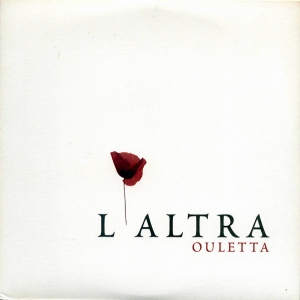
From what I can tell, L’Altra (French for “the other”) has been largely forgotten since their modest heyday in the early ’00s, having last released a comeback-of-sorts album with 2010’s Telepathic. Over their original run of a self-titled 1999 EP, 2000’s Music of a Sinking Occasion, 2002’s In the Afternoon, and 2005’s Different Days, Lindsay Anderson and Joseph Costa’s voices intertwined over an evolving backdrop of Low-esque slowcore, infusing their sound with post-rock, chamber pop, folk, and electronic elements as the additional members of their lineup shifted. (Different Days featured both members of Telefon Tel Aviv after Anderson appeared on three tracks from the group’s 2004 Map of What Is Effortless). Both Anderson and Costa released solo records in 2007, If and Costa Music’s Lighter Subjects, and while I enjoyed those releases, it’s clear in hindsight that they work best in tandem. Ouletta’s quiet strength encourages me to revisit those records in the near future. It's one song split into two parts.
Ocampo, Ocampo, and Watt / “Apparatus” b/w “Better Than a Dirtnap,” ORG Music, 2019
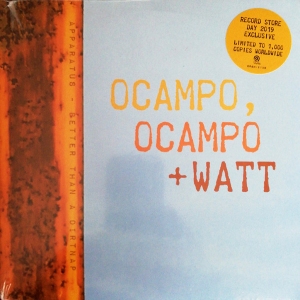
Few tears will be shed over the postponement of Record Store Day this year, as for most people who do not work for the reissues department of a major label, the “holiday” has become a punch-line for the music industry’s worst excesses. But every now and then there’s a legitimate gem released on Record Store Day (or, deep sigh, Record Store Day Black Friday), and last year’s one-off collaboration between Devin Ocampo (of Smart Went Crazy, Faraquet, Medications, Beauty Pill, and The Effects), Renata Ocampo, and the esteemed Mike Watt is one such exception. Anyone familiar with Devin Ocampo’s songs knows that man does not fuck around, and “Apparatus” aligns with his history of excellence, despite the parts being recorded on opposite sides of the country. Watt’s “Better Than a Dirtnap” is a typically idiosyncratic sing-along, a strange song that nevertheless sounds like something you’d known for years. Worth tracking down for fans of any involved parties.
Mogwai / “Mexican Grand Prix” b/w “Slight Domestic,” Rock Action, 2011
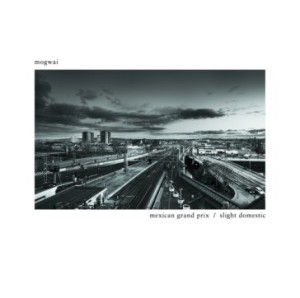
Mogwai hasn’t been quite as productive in the last few years, with their last release being the soundtrack to the sci-fi action film Kin in 2018. (The soundtrack is mostly fine, if less than essential, and I will someday make it through more than fifteen minutes of the film, just not today.) It’s not like the band hasn’t provided me with a surplus of material to enjoy—their vinyl, box sets and all, occupy an entire Kallax cube—but I’ve been spoiled by how regularly they issue both top-line and supplemental material. Their 2011 LP Hardcore Will Never Die, But You Will (which I wrote about at length here) may possess an unquestionably superb album title, but the song selection is somewhat baffling, as the measured, meditative “Slight Domestic” from the b-side of this single and the bruising “Hasenheide” from the “Rano Pano” single each improve upon several tracks from the album.
Pile / “Special Snowflakes” b/w “Mama’s Lipstick,” Exploding in Sound, 2014

Both songs from this single were included on Pile’s accurately titled Odds and Ends compilation in 2018, which collected a bunch of essential tracks from singles and compilations (other highlights include the “Cut off my dick!” screams in “Big Web,” the roaring forward momentum of “Pigeon Song,” and the open fragility of “Keep the Last Light On”). That does not preclude me from pulling out the original single, however, as both of these songs remain among my favorites from the group, and it’s nice to be reminded of just how great of a scope, in terms of both compositional breadth and emotional depth, Pile could fit onto one seven-inch. “Special Snowflakes” was the showstopper, a moody, dynamic rocker that evoked the almighty Rodan in how deftly it handled the switch from a languid stumble to wide-eyed electricity. But “Mama’s Lipstick” was the revelation here, grasping for ineffable memories from youth as present situations ever-threaten to disintegrate.
Constantines / “Our Age” b/w “Fuckin’ Up,” Arts & Crafts, 2008
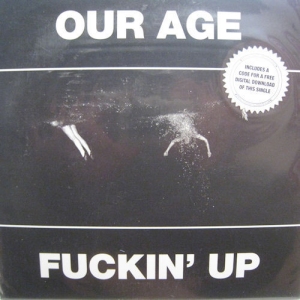
The Guelph-based Constantines are one of those bands that feel very much like they should have been bigger, given how immediate most of their catalog sounds in its Fugazi-meets-Springsteen aesthetic. Perhaps they simply came out too soon, given how other bands mining that general territory found more lasting success in the years following the last Constantines album, 2008’s Kensington Heights. While 2003’s Shine a Light stands as their best album, the bridge between the raw energy of their self-titled debut and the comparatively refined songs from Tournament of Hearts, there’s no single song of theirs I revisit more frequently than “Our Age,” the highlight of Kensington Heights. It’s a classic rock song in the way that many trio-era Silkworm songs are classic rock songs, imparting the accumulated wisdom from their younger, dumber years without sounding like they’re talking down to the kids. There’s a wonderful acoustic rendition on the companion EP Too Slow for Love that’s also worth hearing.
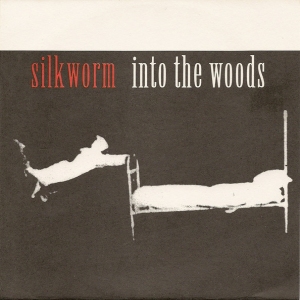
Silkworm / “Into the Woods” b/w “Incanduce California,” Rockamundo, 1993
I wrote extensively about Comedy Minus One’s exceedingly welcome reissue of Silkworm’s In the West last year, and hearing “Into the Woods” from that album on a dusty seven-inch is a good reminder of how tremendous of a job Steve Albini, Tim Midyett, and Andy Cohen did with the remix/remaster of the source material. (There was even a skip before the second verse, to add injury to insult.) I heartily recommend picking up that vinyl reissue (“Incanduce California” is one of the digital bonus tracks) and listening to the episode of Kreative Kontrol with the aforementioned trio of personnel for an enlightening look back at the genesis of the album. Tim Midyett's current band, Mint Mile, just released a double album called Ambertron on Comedy Minus One, but hopefully you preordered that record months ago, had it arrive last week and are enjoying it now.
Tarentel / Two Sides of Myself, Static Caravan, 2000

The post-rock group Tarentel evolved rapidly throughout the course of their existence, going through phases of ambient drones, rhythmic clatter, and psychedelic noise without losing track of a consistent continuum. Having listened to the spacious, haunting drones of 2001’s The Order of Things earlier this week, it’s hard not to see this two-song single as a bridge between the more typical post-rock structures of 1999’s From Bone to Satellite (reissued with bonus material in 2016) and the comparatively skeletal approaches of The Order of Things. It’s worth noting that these songs were recorded in the same time frame (Summer 1999 and February 2000) as my favorite Tarentel material, the “Looking for Things” b/w “Searching for Things” twelve-inch. All four songs, alone with “The Waltz” from their Travels in Constants release, were compiled on Ephemera | Singles 99–2000, which is my ideal soundtrack for reading.
Helium / “Hole in the Ground” b/w “Lucy,” Pop Narcotic, 1993
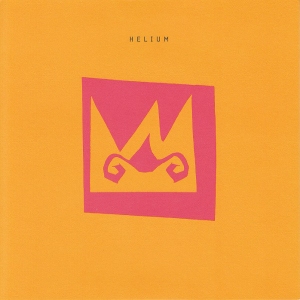
I shouldn’t be surprised that Helium was so good by their second single; after all, Mary Timony had already been in Autoclave and knew how to write arresting songs. But on “Hole in the Ground” and especially the b-side “Lucy” (which I first heard on the disc of bonus material for formative compilation What’s Up Matador), Timony’s noise-pop instincts impress mightily. I could hear an argument that “Lucy” doesn’t need to extend to six-and-a-half minutes, but until No Guitars, Helium tended to stretch their songs out as they saw fit, and “Lucy” deserves to revel in twisting guitar feedback as much as "Baby's Going Underground" needed to zone out in rhythmic bliss. Both sides of this single were included on the 2017 compilation Ends With And, which, like the simultaneous vinyl reissues of The Dirt of Luck and Magic City / No Guitars, are no-doubt pick-ups for anyone interested in rock music .
Telegraph Melts / “Heilgeschichte und Weltgeschichte” b/w “Goodbye No. 20,” Self-released, 1997
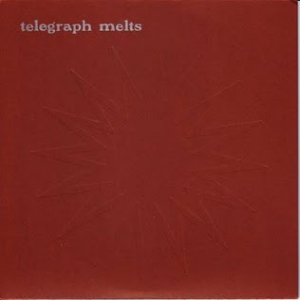
Telegraph Melts was a briefly lived cello-and-guitar duo from two familiar names in the DC music scene. Cellist Amy Dominguez was the driving force for Garland of Hours (along with Brendan Canty), and has done guest spots with countless bands likely in your collection (Fugazi, Faraquet, Mary Timony, Jets to Brazil, Beauty Pill, Ted Leo, etc.). Guitarist Bob Massey was also a member of Tsunami for a spell. Together as Telegraph Melts, they released a full-length, Ilium (which opens with the excellent "Septembrist"), on Absolutely Kosher in 1998 (guest percussion from Devin Ocampo!), and this single. A small, but memorable collection of material that straddled the line between experimental, sometimes abrasive compositions (the slashing guitar noise of “Heilgeschichte…”) and beautiful, affecting post-classical arrangements (“Goodbye No. 20”) reminiscent of Rachel’s. I likely wouldn’t have heard of Telegraph Melts without the early MP3-promoting site Epitonic, but I’m glad that I did.
Ganger / “Geocities” b/w “Alessandra and Her Western Fan,” Wurlitzer Jukebox, 1998
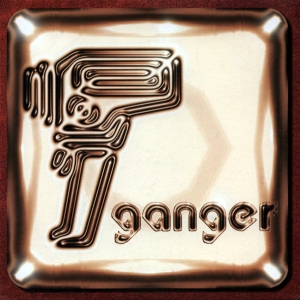
The most obvious reference for Ganger is Mogwai, given that both were prominent post-rock bands from Scotland in the mid-’90s (and I saw them on the same mind-blowing, ear-splitting bill at the Metro in Chicago in September 1999), but on this particular single, a more specific aesthetic touchstone would be the Chicago-based band Dianogah, who explored similar two-bass instrumentals. Technically, Ganger’s lineup included guitarist Craig B. as well, but the basses run the show here, and you could slot either of these songs onto a Dianogah record without raising many eyebrows. A few disparate points: first, the title “Geocities” has largely returned to a positive mental image separate from “gross early web site design”; second, “Alessandra…” was originally a song from Craig B. and Natasha Noramly’s band Fukuyama, whose two singles languish at the bottom of my Discogs wantlist; third, I cannot stress how much better Hammock Style is than anything else in Ganger’s generally likable catalog. If you enjoy post-rock and haven’t heard Hammock Style (start with the incredible "Capo [South of Caspian]"), rectify that error.
Dirty Three & Scenic / Split Single, Narwhal, 1998
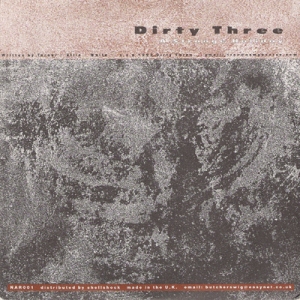
If you’re looking to author some indelible mental pictures while stuck at home, you can do a lot worse for inspiration than the instrumental compositions of Dirty Three and Scenic. I recently listened to Dirty Three’s classic run of albums (1996’s Horse Stories, 1998’s Ocean Songs, and 2000’s Whatever You Love, You Are) and it’s impossible to overstate their greatness. “A Strange Holiday” is on par with those records, a largely piano-dominated lament that gives way to Warren Ellis’s multi-tracked violin in its final minutes. (I recently watched the Nick Cave documentary 20,000 Days on Earth, and Ellis comes across as a supremely endearing human being, especially the scene in which he’s directly a children’s choir.) I know Scenic more for guitarist Bruce Licher’s Independent Project Records / Independent Project Press, which upped the ante on record packaging in the ’80s and ’90s, but I own several of Scenic’s impeccably packaged albums on CD somewhere, and their songs are evocative of many things, but most specifically open Western landscapes. “When the Time Comes” is more brisk than ponderous, but it’s a nice complement to Dirty Three’s track.
Beastie Boys / “Sure Shot” b/w “Mullet Head” Capitol, 1994
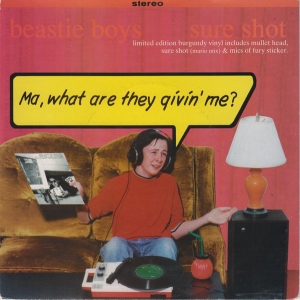
The Beastie Boys were one of the groups in the ’90s that I generally enjoyed but were inescapable enough that I didn’t feel any need to actively put them on—I’ve undoubtedly seen the video for “Sure Shot” dozens of times—but after Adam Yauch passed away in 2012, I made a more conscious effort to work through their catalog. I appreciate their work in the following order: Paul’s Boutique, the singles from their ’90s albums, their general cultural presence, the entirety of their ’90s albums, and then maybe Licensed to Ill and their later records. Last year I read Book, which is a supremely entertaining read for even fair-weather fans like myself, and worth checking out of your local library the next time it's open. I am glad that I picked up this single at Mystery Train at some point; “Sure Shot” is a classic and I enjoy doing the dog-saying-“I love you” intro, “Mullet Head” is a better-than-you’d expect rocker with a neat snaking guitar part midway through, and the remix, while unnecessary, isn’t unlistenable.
Bloc Party / “Two More Years” b/w “Hero,” Wichita, 2005
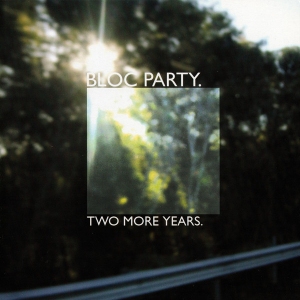
I pulled out Bloc Party’s Silent Alarm earlier this week, and as I do every time I listen to that album, I started thinking about how quickly and thoroughly they squandered its excitement. 2007’s A Weekend in the City isn’t a complete whiff (I like “Hunting for Witches”), but it’s a step in the wrong direction, one which placed too much sonic detritus in the way of the clear, well rehearsed instrumental interplay that drew me into Silent Alarm. (And that was before they started 2008’s Intimacy with a drum break overwhelmingly reminiscent of Chemikal Brothers’ “Block Rockin’ Beats.”) The biggest problem with Bloc Party’s second record is that they could have made it sooner. They had a number of excellent non-album tracks that were left to import singles, as exhibited here by the catchy “Two More Years,” and if they’d simply collected those for Silent Alarm’s follow-up instead of frittering them away, things might’ve gone better in the long run. ("Hero" is a b-side, through and through.) It was particularly noticeable when “Little Thoughts,” another non-album single, popped up in the middle of my American pressing of Silent Alarm, and I immediately thought “This song wasn’t on the album” followed by “Why wasn’t this song on the album?”

Merge wisely pressed these two Adult Swim Singles Series tracks to vinyl in 2017, just like they’d done for Wye Oak’s outrageously good covers of The Kinks’ “Strangers” and Danzig’s “Mother” from the AV Club’s Undercover series in 2011. “Spiral” originally came out in 2012, when I thought its danceable rhythms and rolling marimba melody were interesting stylistic divergences instead of signs of things to come. I was wrong! “Wave Is Not the Water” came out in 2017 and is much more in line with the following year’s excellent The Louder I Call, The Faster It Runs. Wye Oak has issued a number of digital singles leading up to their five-piece-band tour Join (which was sadly interrupted), and I wouldn’t be surprised if an album including those songs arrives this fall, hopefully with a tour stop in Michigan. It would be wild to see them perform with Andy Stack out front playing bass.
The Fall / Bingo-Master’s Break Out!, Superior Viaduct, 1978/2016
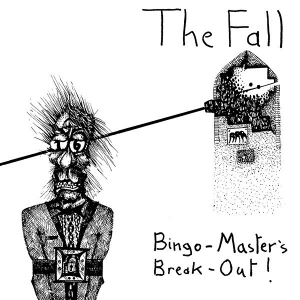
I was slowly working my way up to it, but after Mark E. Smith passed away in 2018, I committed myself to a thorough appreciation of The Fall. I listened to virtually everything the band released—albums, Peel Sessions, singles, rarities—up until around 2000, at which point I very understandably needed to put the project on hold. If there’s a core truth about The Fall that I can impart, it’s that all of those things are important to understanding the band. I could say “1980 through 1986, that’s the best era, Perverted by Language is my favorite album, a singles collection like Palace of Swords Reversed is the best starting point,” but dabbling doesn’t paint the whole picture. I needed to understand that Smith used the albums for different purposes than the singles, that sometimes the definitive version of a song would appear on a Peel Session before or after the release of the album, because you needed to hear all of the versions (exhibit one is “New Puritan”), that knowing the names on the sleeve was critical, even if only one name truly mattered. (That name? Steve Hanley. Kidding, maybe.) It’s even evidenced here on their first single (the only seven-inch I own from them). The two antsy post-punk songs on the a-side are the appetizer, and the rambling, ranting “Repetition” on the flip is the main course.
Hot Snakes / “I Shall Be Free” b/w “A Place in the Sun,” P U, 2020
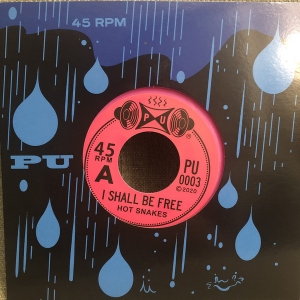
It pays to have friends who will buy an extra copy of a limited-run, available-at-shows-only single and mail it to you, so without my friend Scott, I would not be listening to the new Hot Snakes single right now. These songs will appear on their next album, presumably due in the fall, so if you’re upset about missing out, you won’t languish in misery forever. As per Hot Snakes standards, both songs totally rip / smoke / shred / kill / eviscerate. Whatever trending verb you’ve got, this single does it, the Hot Snakes guarantee. “I Shall Be Free” opens with their telltale melodica, but soon breaks out into a pounding, mid-tempo series of body blows. “A Place in the Sun” is even better, an all-out rocker with a riff near the end of the song that recalls some of Drive Like Jehu’s crazier moments. Let me preorder the next record now and Rick Froberg can blow my twenty bucks on art supplies to keep himself busy.
Fucked Up / “Blink” b/w “The Way We Did,” Fucked Up Records, 2014

I’ve played a lot of records this week, but given that my wife is working from home and my kids are attempting to keep up with school, the vast majority of albums qualify as unobtrusive. I’m glad to rotate through my stacks of ambient, drone, modern classical, post-rock, and Kosmiche records, but one day after dinner I put on Fucked Up’s The Chemistry of Common Life, and it felt alive in a way that much of this last week hasn’t. It also reminded me of the times that I’ve seen Fucked Up, and how sweaty those shows are in the best possible way. The Fucked Up live experience may only exist in fantasy right now, but fortunately they have released a metric fuckload of records, and I own a good, if by no means complete, collection of them. A personal favorite is this tour single, purchased at a concert in San Francisco. Both songs rank among my favorites for the band, and I’ve found myself putting it on quite a lot over the years for a small dose of a band that’s often served in overwhelming portions. Apparently it's hard to come by because a box of them fell out of their van on the way to Los Angeles, the classic punk rock mix-up.
The Twilight Sad / “The Room” b/w “The Neighbours Can’t Breathe (Acoustic),” FatCat, 2010
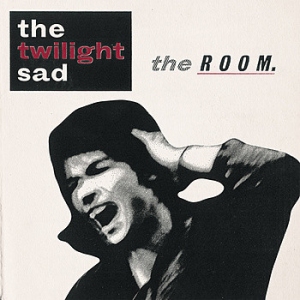
The Twilight Sad has issued a tall stack of seven-inches that would make worthy choices for today, most recently the “Rats” b/w “Public Housing” supplement to their 2019 album It Won/t Be Like This All the Time (fingers crossed). But it’s hard to pass up a single with one of their best songs on the a-side and an acoustic version of another one of their best songs on the b-side, both from their underrated 2009 album Forget the Night Ahead. (I could make a convincing argument that each of their albums since their rightly heralded 2007 debut, Fourteen Autumns and Fifteen Winters, is underrated in some capacity.) “The Room” appropriates the insistent, minimal pound of Nine Inch Nails’ “Hurt” for a comparatively warm, if typically inscrutable tale. I’m also partial to the live rendition with the Royal Scottish National Orchestra. Regardless of the arrangement, it’s all about James Graham’s voice. “The Neighbours Can’t Breathe” strips the jet-engine roar from the album version to reveal Andy MacFarlane’s delicate arpeggios and loses none of its mystery.
Cloakroom / “Lossed Over” b/w “Dream Warden,” Run for Cover, 2014
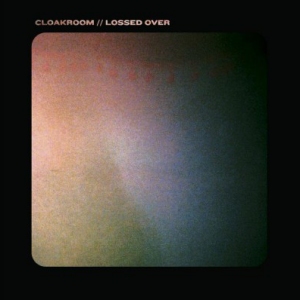
Cloakroom was scheduled to open for Caspian in Detroit this spring, but like many others, that show was postponed indefinitely. They’ve toured in the last year, but haven’t released anything since 2017’s Time Well, which was my introduction to their blend of Hum’s guitar tones, Pinebender’s crawling tempos, and Songs: Ohia’s wounded emotions. The a-side of this single appears on their 2015 album Further Out (its closing track, “Deep Sea Station,” is one of those songs I’ll play a half-dozen times in a row), but its b-side is exclusive to the single, and features Hum’s Matt Talbott, who produced Further Out, on vocals. I know Hum is still threatening to release a new record one of these years (“It’s almost ready” I’ve heard, quite a lot), but “Dream Warden” is a few ripping Tim Lash leads shy of being a fantastic Hum song.
St. Vincent / “Krokodil” b/w “Grot,” 4AD, 2012
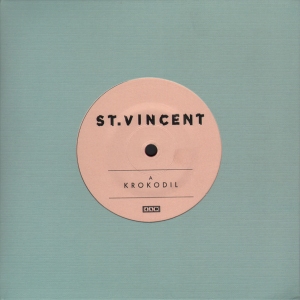
Another rare instance of an essential record being released on Record Store Day, this St. Vincent single might be my favorite thing that she’s released. St. Vincent played a set of Big Black covers in 2011, and it’s hard not to hear “Krokodil” as embodying that abrasive spirit. That isn’t to say that it’s pale mimicry or uninspired tribute—“Krokodil” certainly has the manicured arrangements of Strange Mercy in its DNA as well—but it’s an exceptionally interesting direction for her to take given how fast her star was growing at that point. “Grot” is even better, as Annie Clark caustically delivers power-structure critiques over a slow-motion collision of enchanting vocal loops and super-heavy, warped riffs. On one level it’s disappointing that she didn’t pursue this direction further or longer, on another level perhaps it’s the exact right amount to pursue this direction.
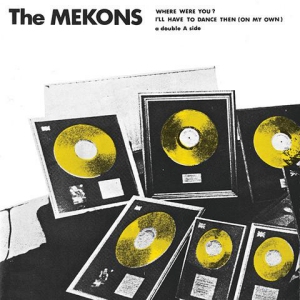
As someone who counts 1985’s Fear and Whiskey among his favorite albums, it’s slightly embarrassing that it took me this long to properly explore The Mekons’ earliest recordings when they were in the same post-punk class as Gang of Four (literally: both bands formed at the University of Leeds). Some of this delay came down to availability, since they’re a band I mostly listen to on vinyl, and while I had been able to find copies of their key records from the ’80s and early ’90s with relative ease, I simply didn’t run into 1979’s The Quality of Mercy Is Not Strnen, 1980’s self-titled album, or their early singles in American record stores. Some of this delay came down to reputation, as their early days are often discussed as being an art school lark that never took itself very seriously, especially in contrast to Gang of Four. Fortunately, Superior Viaduct has reissued their first two singles and their debut record, and my immediate takeaway from spending adequate time with this era of the band is that it’s far, far better than reported. They possessed a freewheeling, egalitarian artistic spirit, but they wrote post-punk songs that were just as good as their compatriots’. Here, “Where Were You?” evokes a more lighthearted track from Wire’s Chairs Missing and “I’ll Have to Dance Then” nicks some of Gang of Four’s funkiness.
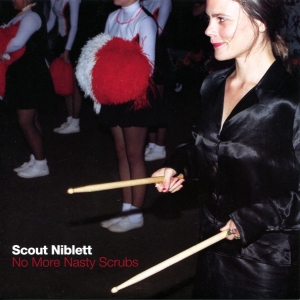
Last year I read Erin Osmon’s Jason Molina: Riding with the Ghost, an enlightening and eventually very harrowing look into the life and death of the Songs: Ohia and Magnolia Electric Co. captain. The book discusses how Molina gave Scout Niblett’s demo to Secretly Canadian, which led to her signing with the label, and how they would share a split single. I had seen her name before, but didn’t know anything about her, so when I checked out Wikipedia, I learned that 1. we are birthday buddies 2. she released a single with covers of Janet Jackson’s “Nasty” and TLC’s “No More Scrubs.” I made a mental note to find that single, and as if fate had deemed me worthy, I found a copy at Dearborn Music a few weeks later. Her rendition of “Nasty” is appropriately sassy and drum-heavy, but it’s her sober, bluesy take on “No More Scrubs” that rewards that initial connection with Jason Molina. Granted, covering an R&B song is far more of a Will Oldham move, but Niblett does both sides of this conceit justice. Now I need to make a mental note to find more of her records.
Wire / “A Question of Degree” b/w “Former Airline,” Harvest, 1979
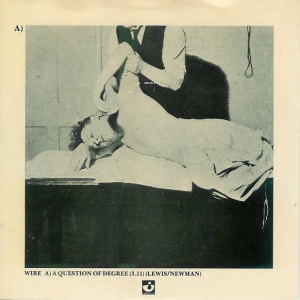
I own two copies of the most essential Wire non-album single, given that I’d bought this original a few years before all of their early singles (most of which I did not previously own) were collected in the Nine Sevens box set. But it’s hard to complain about having another copy of “A Question of Degree,” one of Wire’s best tracks, and the platonic ideal of guitar-driven post-punk. The flip is, in a particular sense, an accurate prediction of the upcoming 154, as “Former Airline” buries what could have been a straightforward post-punk track in layers of abrasive production noise (horns, strange sounds, guitar slashes—who knows). As with 154, it works because of what accompanies it. I can listen to all of 154 because for every unsettling “Indirect Enquiries,” there’s a perfectly crafted “Map Ref. 41°N 93°W” to help it go down.
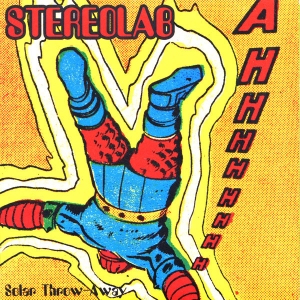
Seeing Stereolab on their fall tour last year was one of my biggest priorities and toughest logistical challenges; I had to make an educated guess as to where I would be living at the time, and thankfully, I correctly surmised that I would be closest to their Detroit date. It was worth all of the stress to finally see them perform. Laetitia Sadier has a completely enchanting stage presence, Tim Gane seemed thoroughly pleased to hyper-strum on the side of the stage, and substitute bassist Xavier Muñoz Guimera handled those exceptionally dexterous bass line and the dearly departed Mary Hansen’s background vocals with jaw-dropping aplomb. They played the songs I wanted to hear the most—“Crest” and “Jenny Ondioline”—but showed that any song from their vast catalog could be captivating. Over the next few months I worked through their series of expanded reissues, seven in total, and at no point did I wish that there was less to go around. Next up, to the best of my knowledge, is Switched On Volume Four, another collection of non-album material, which I presume will include this single. I genuinely couldn’t remember what these songs sounded like before putting it on, but the a-side is a particular treat with its mid-song shift. Will we get new Stereolab music? Who knows, but I’m ready and waiting if they do.
Errors / “Magna Encarta” b/w “Ganymede,” Rock Action, 2010
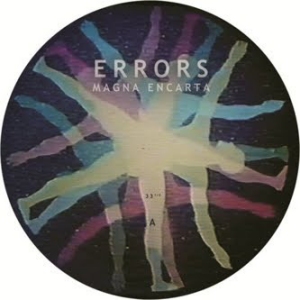
It’s a bummer when you have to come to your own conclusion that a band is done making music—such is (presumably) the case with my beloved Scottish post-electro band Errors. Their last record was 2015’s Lease of Life, for which they did comparatively little touring (no live footage of this material is on YouTube), and it now seems safe to say that the inventive, vocal-heavy synth pop of that album marked their final evolution. I’m glad that I was able to see them at Great Scott in Allston in 2012, and especially appreciative that they performed “Magna Encarta,” my favorite song from the group. It marked the farewell of original guitarist Greg Paterson, who left the group before 2012's superlative Have Some Faith in Magicto pursue dentistry, and over its six minutes there’s a still-impressive array of terrain covered, from poignant slide guitar leads, to subterranean video game level neuroses, to wordless yet emotive vocals. It easily ranks among my favorite songs from the last decade. The b-side, “Ganymede,” is comparatively slight, but tonight I appreciated its womb-like enclosure.
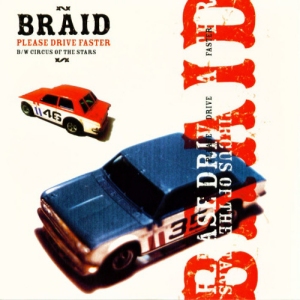
It’s somehow been only five weeks since most of my Twitter feed was griping about Vulture’s Top 100 Emo Songs instead of worrying about their potential doom, but time flies when you’re vastly overrating American Football. I kid—mostly. As much as I like American Football (albums one and three), it remains a brain-breaking thought that a band who was mostly an afterthought in Champaign, where I moved to for college in 1999, would be the most heralded, influential act in emo twenty years later. If you’re familiar with Upright Citizens Brigade bits, it’s like asking the robot, “How come?” I just can’t wrap my head around it. If I were a betting man and had to pick one Champaign band to take that crown, I would have said “Oh, it’ll be Braid” in a split-second. Their last show was on my first night in college and it was packed. People cared about their string of posthumous releases. Other bands aped their sound. Post-Braid act Hey Mercedes was on every bill in Illinois for a solid year. Am I saying that Braid deserves to be the most heralded, most influential emo band? No, not really. I’m happy to pick and choose from most of their catalog prior to Frame and Canvas and this single, which was later included on Movie Music Vol.1. Their legacy isn’t half-bad: they enjoyed several reunions and put out a solid full-length with 2014’s No Coast. But if you presented two anonymized paths and asked me which one would be American Football’s and which one would be Braid’s, I would have been dead wrong. Don’t trust me on anything.
Lower Dens / “I Get Nervous” b/w “Johnssong,” Gnomonsong, 2010
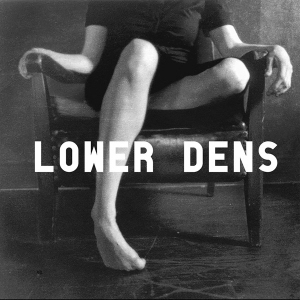
Jana Hunter had been making music for years before forming Lower Dens, but it remains impressive that the group formed in 2010 and released Twin Hand Movement the same year, given that it’s such an assured, thought-out debut. The element that stands out to me about both “I Get Nervous” and the non-album b-side is how ’50s pop is foundational in the sound—the reverb-heavy guitar, the slow-dance tempos—and yet neither song sounds like an explicit throwback. After enjoying Twin Hand Movement, I was floored by “Brains,” the lead single for their sophomore album, 2012’s Nootropics, and how it felt like the future in a way that few songs do. (I put it on a few months ago and it still does sound like the future.) Given the penchant for dramatic stylistic shifts (and the departure of the other original members of the band), I shouldn’t be surprised by Lower Dens’ switch to mining of ’80s synth-rock on their last two records, but I haven’t found as much about those records that engages me as on their first two.
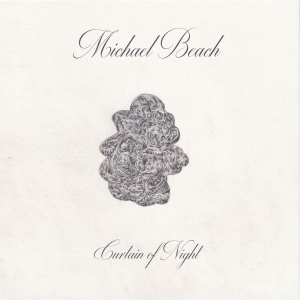
Australian native and periodic Oakland resident Michael Beach released one of the best records of 2017 in Gravity/Repulsion, which recalls both American classic rock staples and New Zealand rock imports over its eight songs and twenty-six minutes. There are short records and there are concise records, and Gravity/Repulsion is the latter, but even within its tidy runtime, there’s a sense of sprawl and space to “A Vision of Modern Love” and “Freddie Dreams of Mars” that most artists would waste hours trying to capture. This single introduces his new backing band, The Artists, with one original song, the affable and immediate “Curtain of Night,” which slides on like a well worn pair of jeans that somehow hasn’t developed an embarrassing hole in the crotch, and one cover, a coiled, tense rendition of Peter Jefferies’ “Electricity.”

I never miss an opportunity to harp on the greatness of Polvo in general and post-reformation Polvo in specific, so when I saw the largely slept-on “Heavy Detour” single in the box, I pulled it out over some classic competitors. This single came out between 2009’s In Prism and 2013’s Siberia (which may be the best Polvo album if you let me talk at you for a half an hour), and the a-side is exclusive to the single, while the b-side was re-recorded for Siberia. “Heavy Detour” is a Dave Brylawski–fronted track, and I suspect fans are slightly cooler on those songs than ones Ash Bowie sings, but it’s a solid track. (Is one of my main arguments in favor of Siberia that Brylawski’s songs are every bit as good as Bowie’s on that album? It sure is!) The synth strings are a key component and there’s a groove to the song, both elements that Polvo generally avoided but work well here. Bowie’s “Anchoress” is an interesting case—there’s this version, an alternate take that was available as a bonus download, and the final version that made Siberia. I enjoy this version for its differences (much more prominent synths, a funny vocal “Yeah huh” from Bowie before the outro), but the Siberia version hits the proper, slightly somber tone.
The Paradise Motel / “Drive” b/w “Drive (Mogwai Mix),” Infectious, 1999

In the early days of filesharing, songs were often mislabeled in hilariously egregious ways, but a subtler mistake accompanied my original encounter with Mogwai’s remix of The Paradise Motel’s cover of The Cars’ “Drive.” It was simply labeled as a Mogwai song, no mention of The Paradise Motel. I don’t think it took long for me to learn that it was a remix (not that I learned anything about The Paradise Motel in the process), but I still enjoyed its exceptionally minimal, digitally processed lullaby rendition of that Cars song. Last year, I came across a cheap copy of this seven-inch, and heard the unaltered cover for the first time. It’s pleasant and similarly minimal for the first half (the vocals lack digital processing), and then a very prominent string arrangement elbows its way into the song. That arrangement mercifully fades, but the calm has been broken. Mogwai’s version focuses on the original synth melody and the digital layers over Merida Sussex’s vocals. It never peaks, it just glides. It’s exponentially better than the source material.
Wipers / Alien Boy, 1980/2019
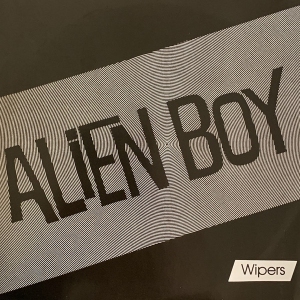
I don’t actually believe that Greg Sage existed in a vacuum, sealed off from the rest of punk and post-punk in Portland, OR, but when I listen to the Wipers’ music, it feels disconnected enough from the trends and techniques popular elsewhere at the time that I can at least entertain the thought. This EP includes “Alien Boy” from their debut Is This Real? along with three outtakes from those sessions. It feels very much like a bridge to their next release, 1982’s Youth of America. It invokes that record’s mood—its paranoid, lonely, nervous energy—but with the three non-album tracks fitting on the b-side, not Youth of America’s sense of scope. “Voices in the Rain” in particular has the sing-speak delivery that’s used a number of times on its follow-up.
|
|
Even though it’s an albatross for people trying to push away from the Pitchfork crowd, I’ll readily admit my fondness for the Arcade Fire’s Funeral. I saw the band back in November of 2004 and was completely pulled in by their enthusiastic performance at a small club in Champaign. I fully expected a rise in popularity, but I’m not sure if I anticipated things like the David Bowie and David Byrne collaborations. Given this overwhelming hype for the band and the record, I decided to wait until I could pick up Neon Bible on vinyl before giving it a listen. (Well, I heard “No Cars Go,” but that one’s a re-recording.) I figured two things—one, it would be a throwback to my high school days of purchasing the album on the day of release and quickly heading home to hear it in its entirety; and two, I wouldn’t get too involved in the initial rush to judgment. I did not know that the vinyl release would come two months after the CD release, but I decided to wait anyway.
I picked up the album last week and finally found the spare hour to hear it tonight. I wrote down my notes in haikus, inspired by Floodwatchmusic’s reviews of each song, so I’ll start with those:
“Black Mirror”
Awkward stage banter:
“This one’s about my mirror.
Pretty dark, huh guys?”
“Keep the Car Running”
Let’s add some hand claps.
That last one was a downer.
Now we’re smiling, scared.
“Neon Bible”
A concept record
About not having much fun
Certainly not here.
“Intervention”
Hear this soldier groan.
Order them some subtlety,
Destroy that organ.
“Black Moon / Bad Vibrations”
New side, more Regine.
Did she get concept memo?
Some fun to be had.
“Ocean of Noise”
After muted start
Strings arrive, aching wildly.
Phew, just in time, Win.
“The Well and the Lighthouse”
An uptempo romp
Gazing upon “water black.”
Overbearing hope.
“Antichrist Television Blues”
The E Street Band called,
Said you could use some hot sax,
Less background yelping.
“Windowsill”
It’s not wartime angst.
More like “Screw you, Dad! I’m gone!”
Oh, see last album.
“No Cars Go”
Retread or new life?
Well, there is more energy.
But that “Woo!” was lame.
“My Body Is a Cage”
Starts off R&B
Then adds vampiric organ.
Train-wreck in slow-mo.
Those haikus may very well state similar sentiments to Floodwatch (I tried not to go over his before listening to the album), but I’m going to up the ante and write a sonnet about the album as a whole.
Neon Bible
Watching months lurch their way past my platter,
The anticipation caked up like dust.
Their exuberant whirl did not scatter,
It rather formed an exalted white bust.
With such iconic personage at stake,
How can one maintain realistic hope?
Bands must change, must evolve; the seams must break.
No choice but to explode, expand the scope.
Was this vigilant edict brought too far?
Now nothing seems out of bounds, no lines drawn.
The personal—once critical, now barred.
New task: to find the grass within the lawn.
From out of darkness into diaries,
To return voices from nations to pleas.
The bar has been raised, FWM. I expect Spenserian stanzas about each song of Stars of the Lid’s And Their Refinement of the Decline within the week.
|
|

